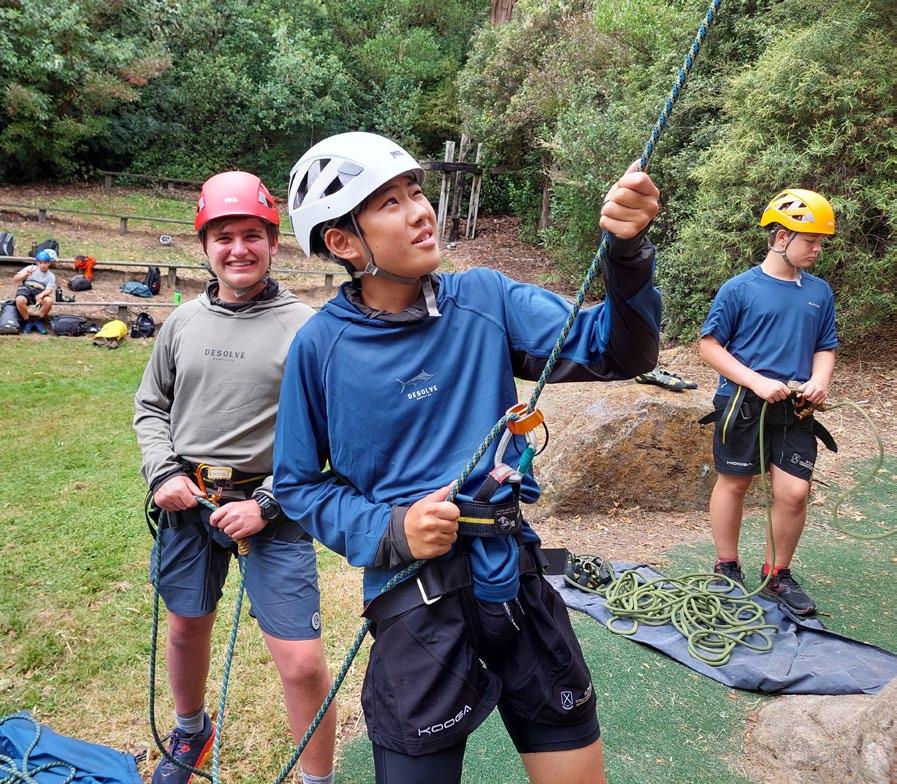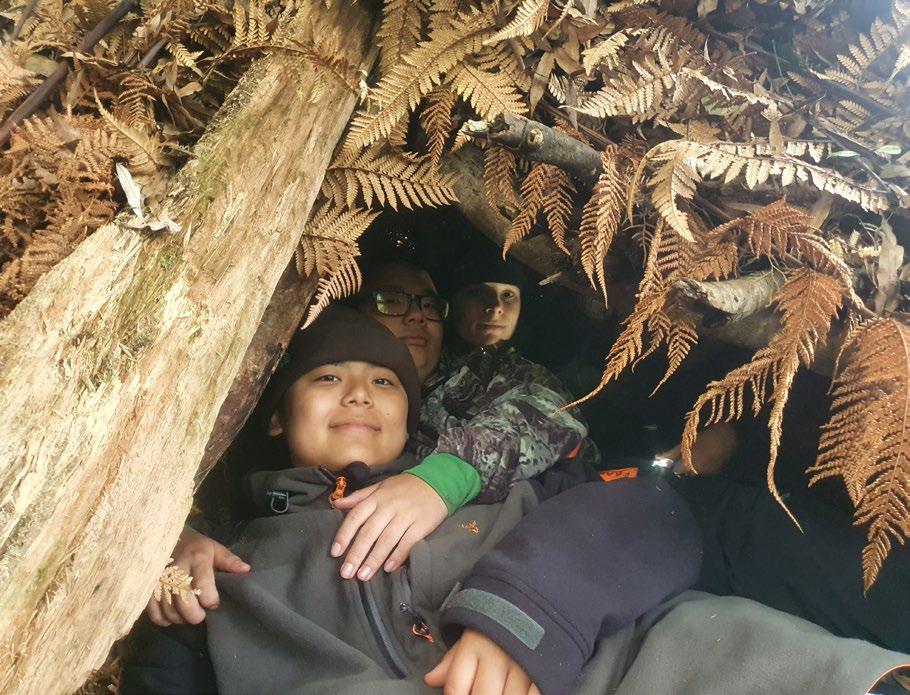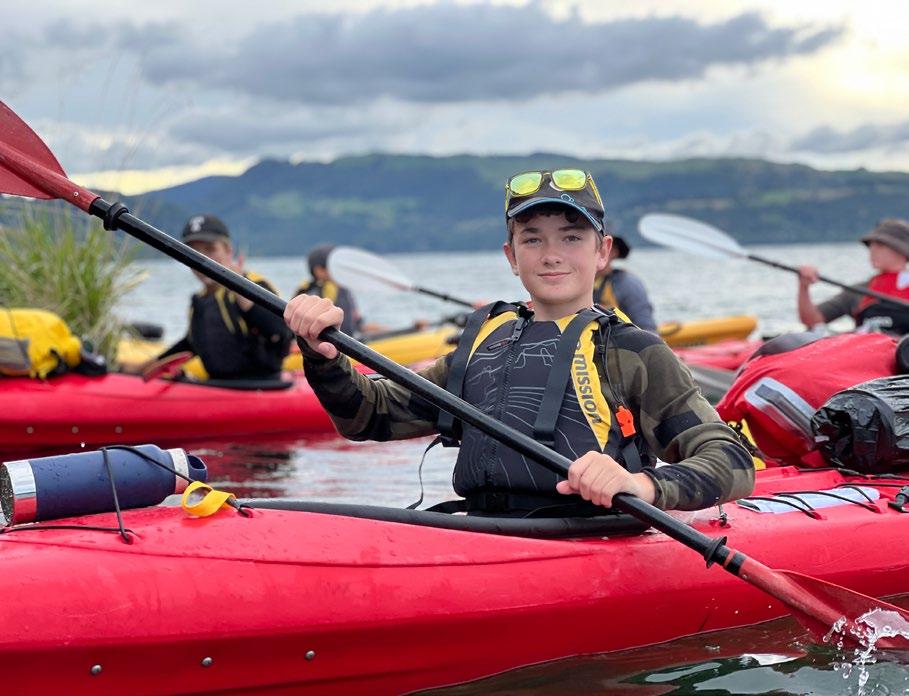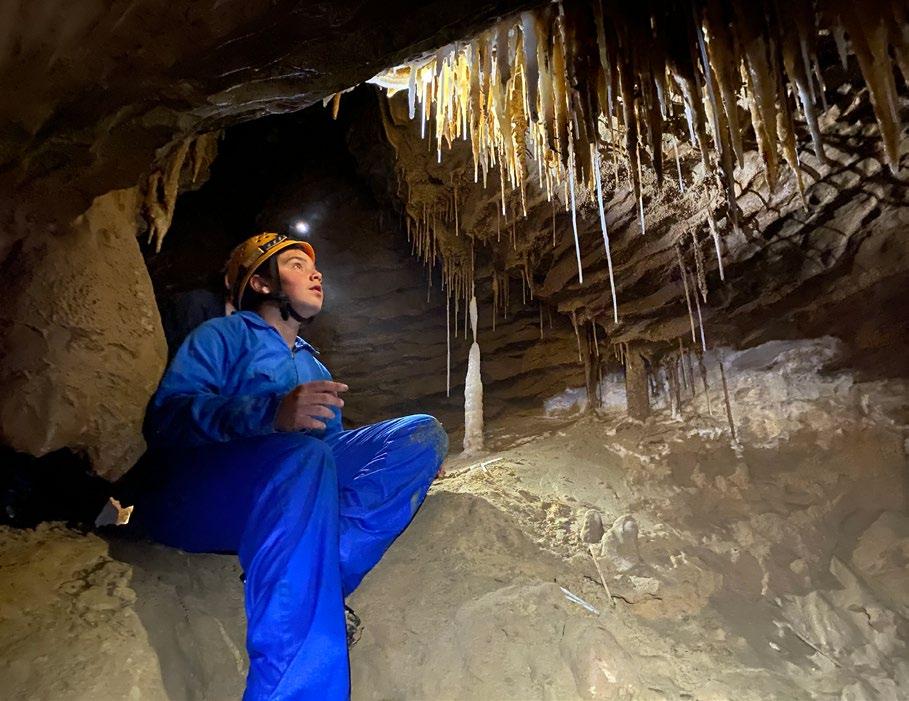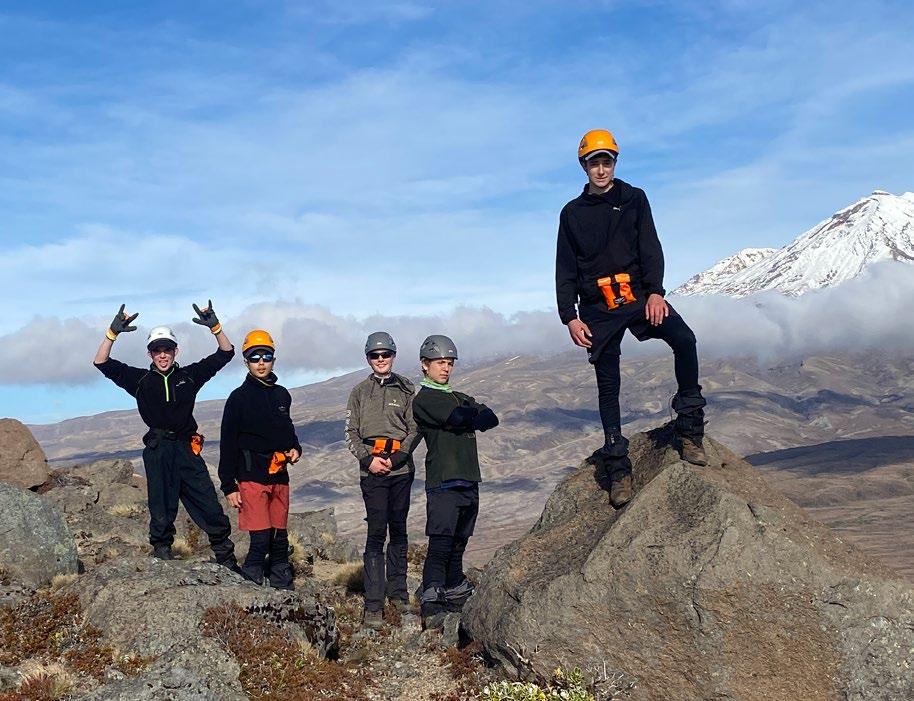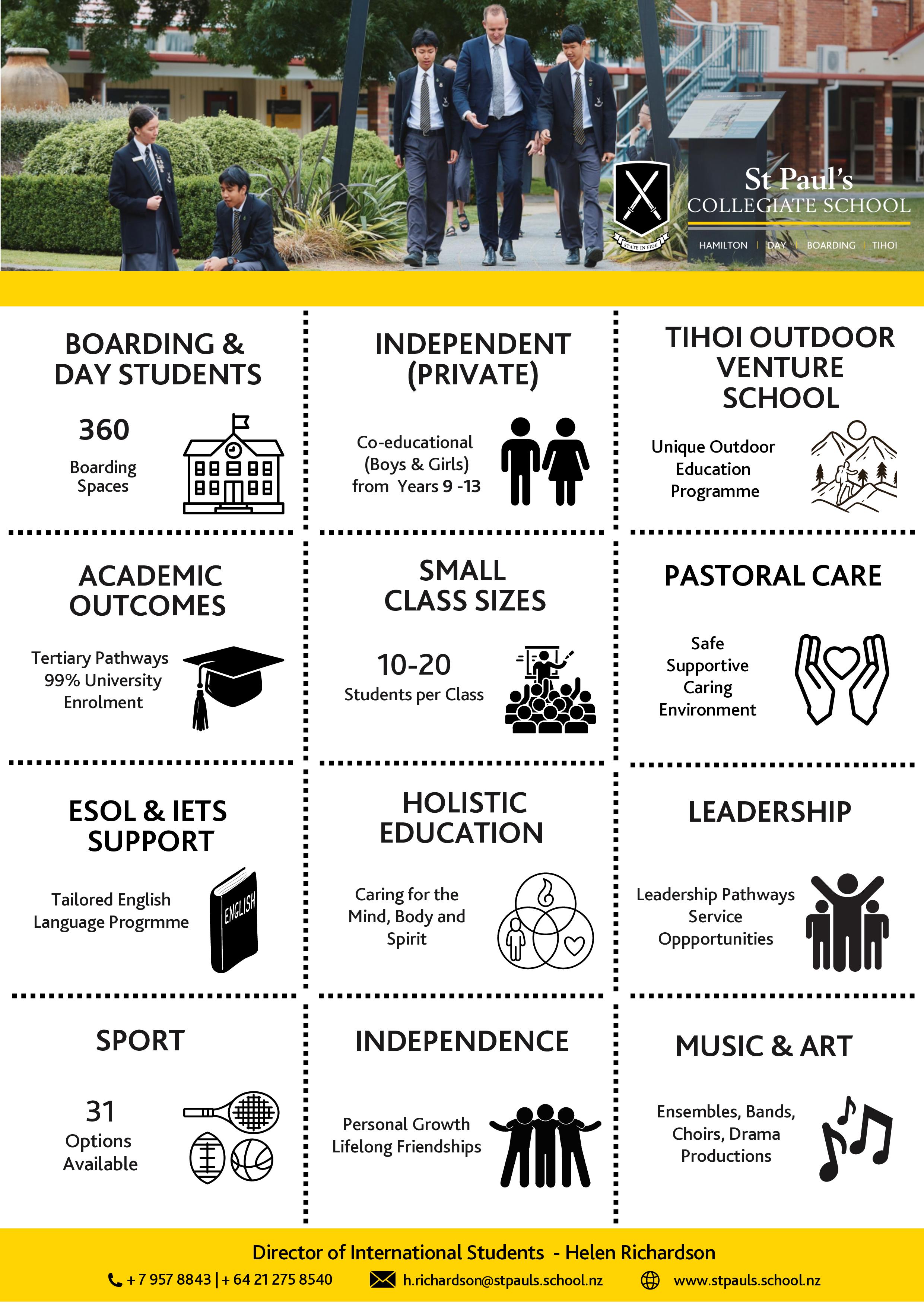ST PAUL’S COLLEGIATE SCHOOL

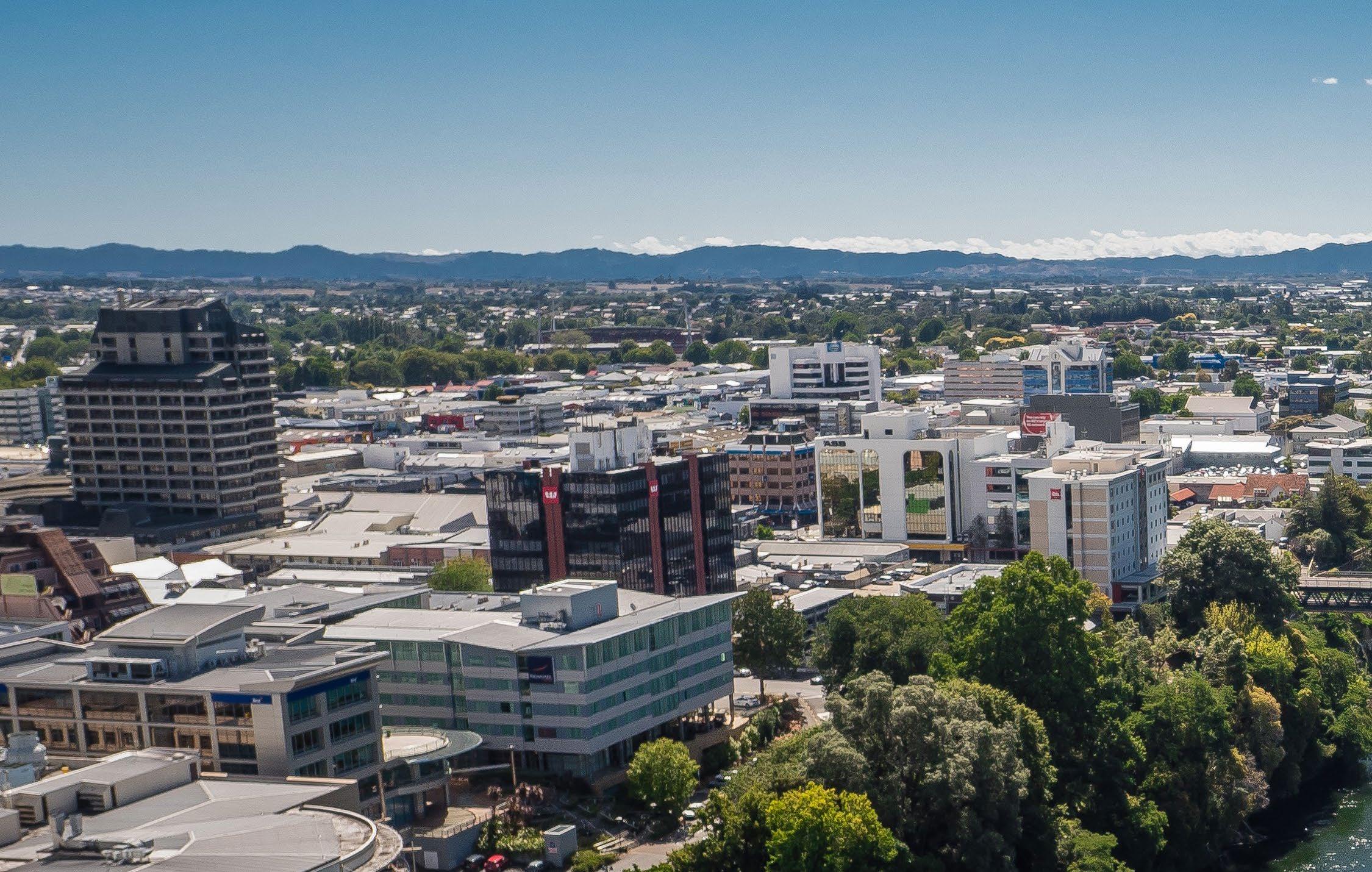



Renowned for its lush landscapes, scenic river trails, and iconic film locations, the Waikato region blends natural beauty with urban energy. Home to the mighty Waikato River and just ninety minutes from Auckland International Airport, Hamilton is a growing city at the heart of the region.
It offers world-class education, exciting career prospects, and a supportive, inclusive community. With a vibrant arts scene, a thriving innovation sector, and a reputation for safety and affordability, Hamilton is an ideal destination for international students seeking a balanced and enriching lifestyle.
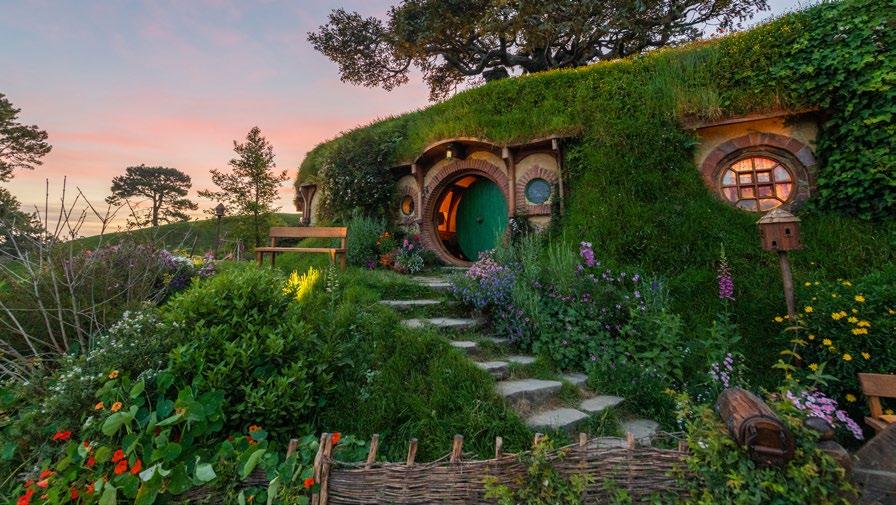
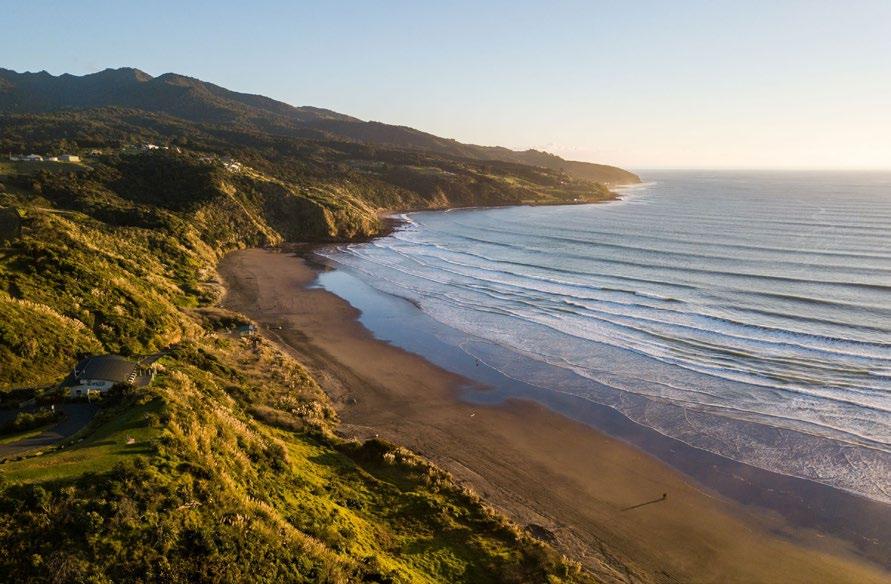
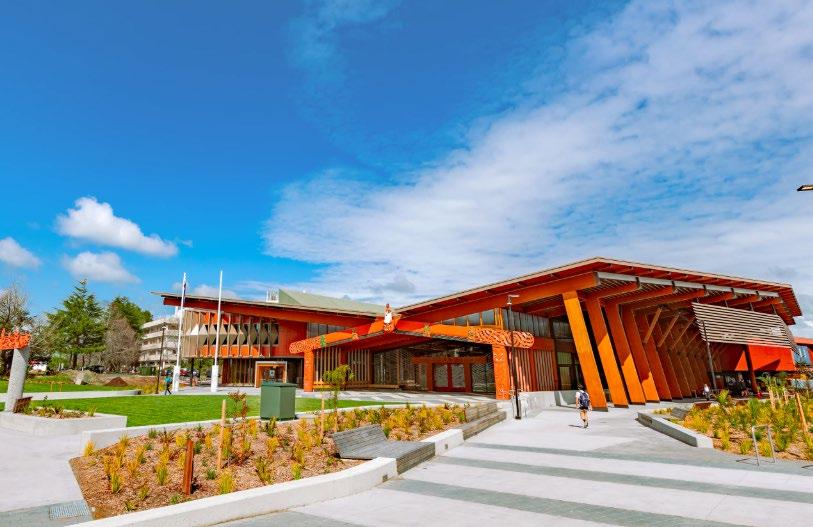
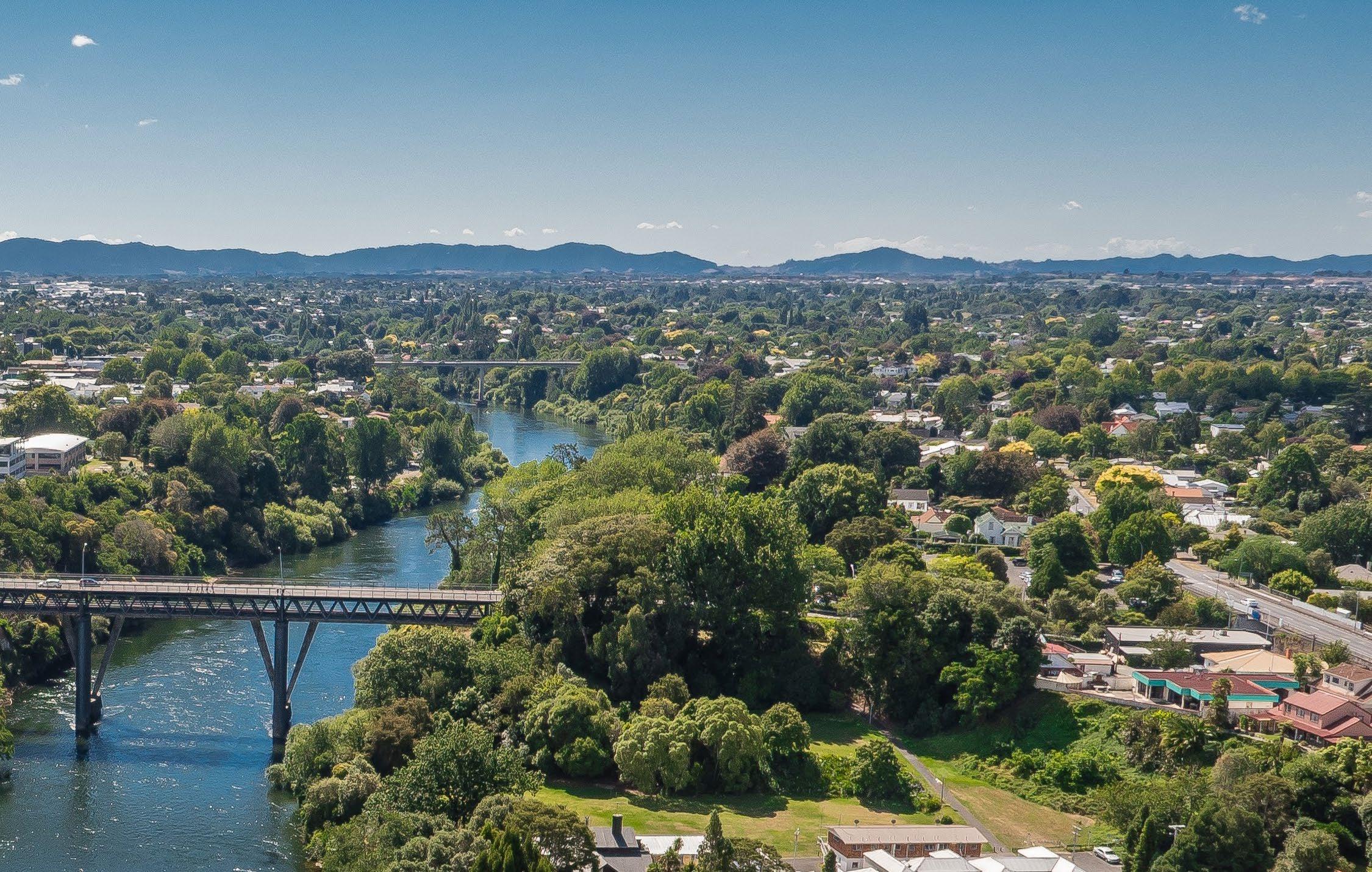
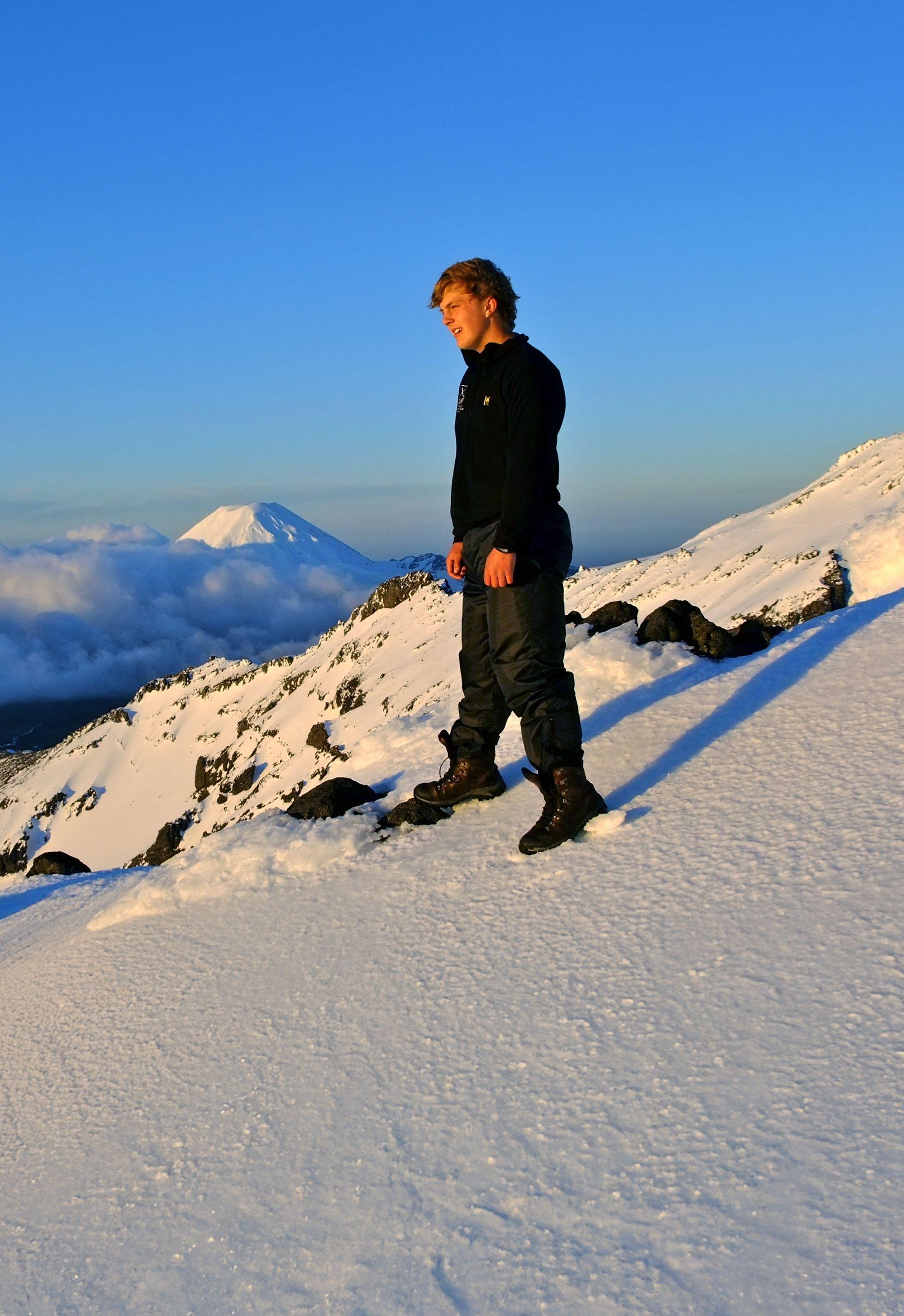
We are committed to a culture that encourages all pupils to achieve the very best they can.
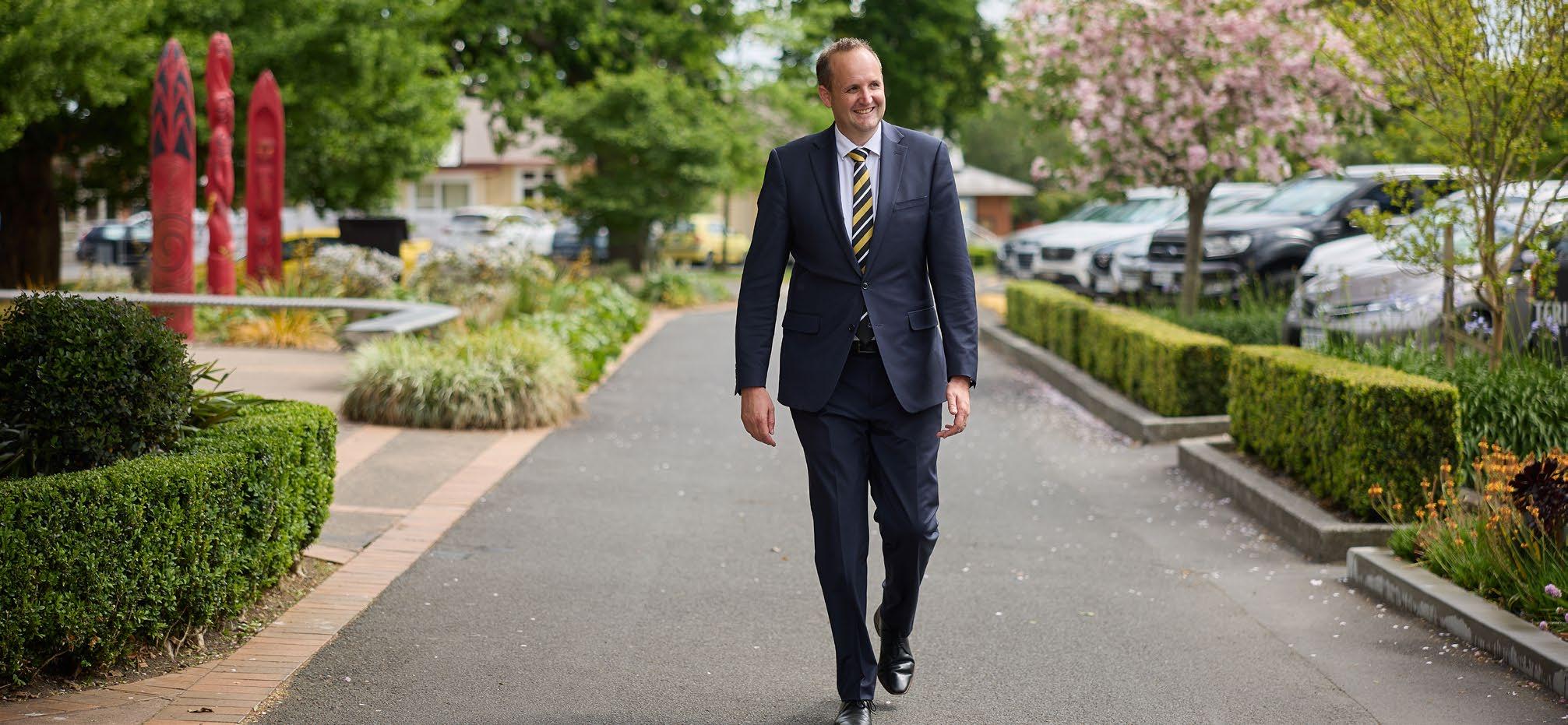
At St Paul’s Collegiate School, international students quickly become part of a caring and inclusive community where they are supported to thrive both inside and outside the classroom.
Located in Hamilton, the heart of New Zealand’s Waikato region, St Paul’s is home to more than 880 students, including 320 boarders. Here, young people from New Zealand and around the world live and learn together, forming friendships that last a lifetime.
Our small classes and dedicated teachers ensure every student is known and encouraged to reach their full potential. Alongside strong academic pathways to universities worldwide, students are involved in sport, music, performing arts, and outdoor education, helping them build confidence, independence, and resilience.
Most importantly, St Paul’s is a place where international students feel at home, welcomed, supported, and inspired to discover their own pathway to success.
I warmly invite you to join our global family at St Paul’s Collegiate School.
Our Vision
Turning possibilities into reality
Our Mission
Preparing students for life in the global environment by providing challenging educational experiences that realise their full potential through faith, virtue and excellence in performance
Our Motto State in Fide (Stand firm in our faith)
• Established in 1959
• Approximately 880 students
• Co-educational Years 9-13
• Boarding school with three boarding houses for boys and one for girls
• Approximately 320 boarding students and 500 day students
• Two campuses - one in Chartwell, Hamilton and one at Tihoi Venture School where Year 10 students spend 12-18 weeks in an outdoor programme
I am pleased to know that my son spent his time and life at St Paul’s happily and successfully. When he decided to study in New Zealand, he could not speak any English at all. I was very concerned whether he could settle into a new environment due to his shyness.
When he came home at the end of his first year, where he had been to Tihoi, he had grown stronger both physically and mentally as well as looking very different.
The following year, he adjusted to the school routine as well as daily life and settled down well. The more his English skills improved, so did his understanding of everything. He started to enjoy interacting with friends. He gained excellent academic results at Year 12, which made him grow in confidence.
I have seen my son’s great growth in confidence. It has been an invaluable and lifelong experience for him thanks
to caring support and warm encouragement by St Paul’s staff. Their response to any of my concerns has been always quick and accurate.
We selected St Paul’s from many schools in New Zealand and I am assured we made the right decision.”
- Mrs Chisami Yonekura (mother of Kazuhiko Yonekura)
I am assured we made the right decision.

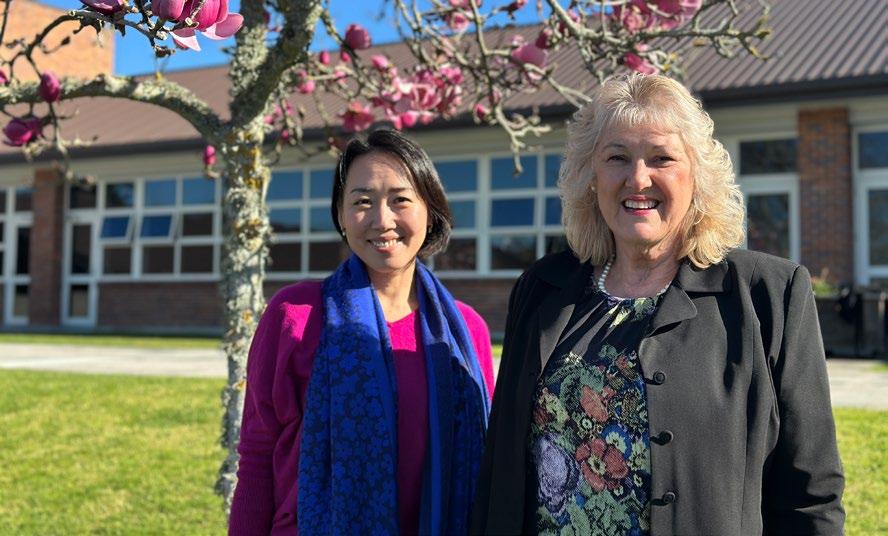
Helen Richardson (right) Director of International
Students
Minha Hutchison (left) Homestay Coordinator
At St Paul’s, we take a holistic approach to all aspects of daily life and learning, ensuring students feel included and part of the St Paul’s family. Happiness is hugely important to a student’s success.
Our support begins at enrolment. Staff will provide pre-departure information and meet the student at the airport on arrival. Once settled into a boarding house or host family, the student will undertake a comprehensive orientation programme.
Our International Centre offers a space where all students can enjoy the company of other students, chat with staff and discuss any issues in a nurturing and supportive environment.
St Paul’s provides a strong support system for students as they grow from adolescents into young adults. Qualified support staff including a chaplain, nurse, guidance counsellor and careers counsellor are available for students who require academic, medical and emotional support and advice. Students can also call on their housemaster and deputy housemaster for support.
All international students are required to have a guardian (a New Zealand support person) while they are at St Paul’s. A guardian can be a relative or friend of the family or a person recommended by St Paul’s staff.
It is important that students have someone, apart from their homestay family, who they can meet with regularly and feel directly supported by. Guardians help deal with various personal and administrative matters like parentteacher interviews on behalf of the student’s family. Ideally, guardians speak the same language as the student and their family.
St Paul’s is a signatory to the Code of Practice for the Pastoral Care of International Students developed by the New Zealand Ministry of Education. Copies of the code are available from the NZQA website:
www.nzqa.govt.nz/providers-partners/caring-forinternational-students
The division of our students into houses provides a smaller group in which our students can find friendship and support at St Paul’s.
As part of the vertical house system students take part in inter-house competitions where the school’s houses compete as teams against each other in various events.
Points are allocated to each house at the end of every competition as students vie for the enviable position of the winning house at the end of the year.
See more about the House system on our website: www.stpauls.school.nz/page/house-spirit

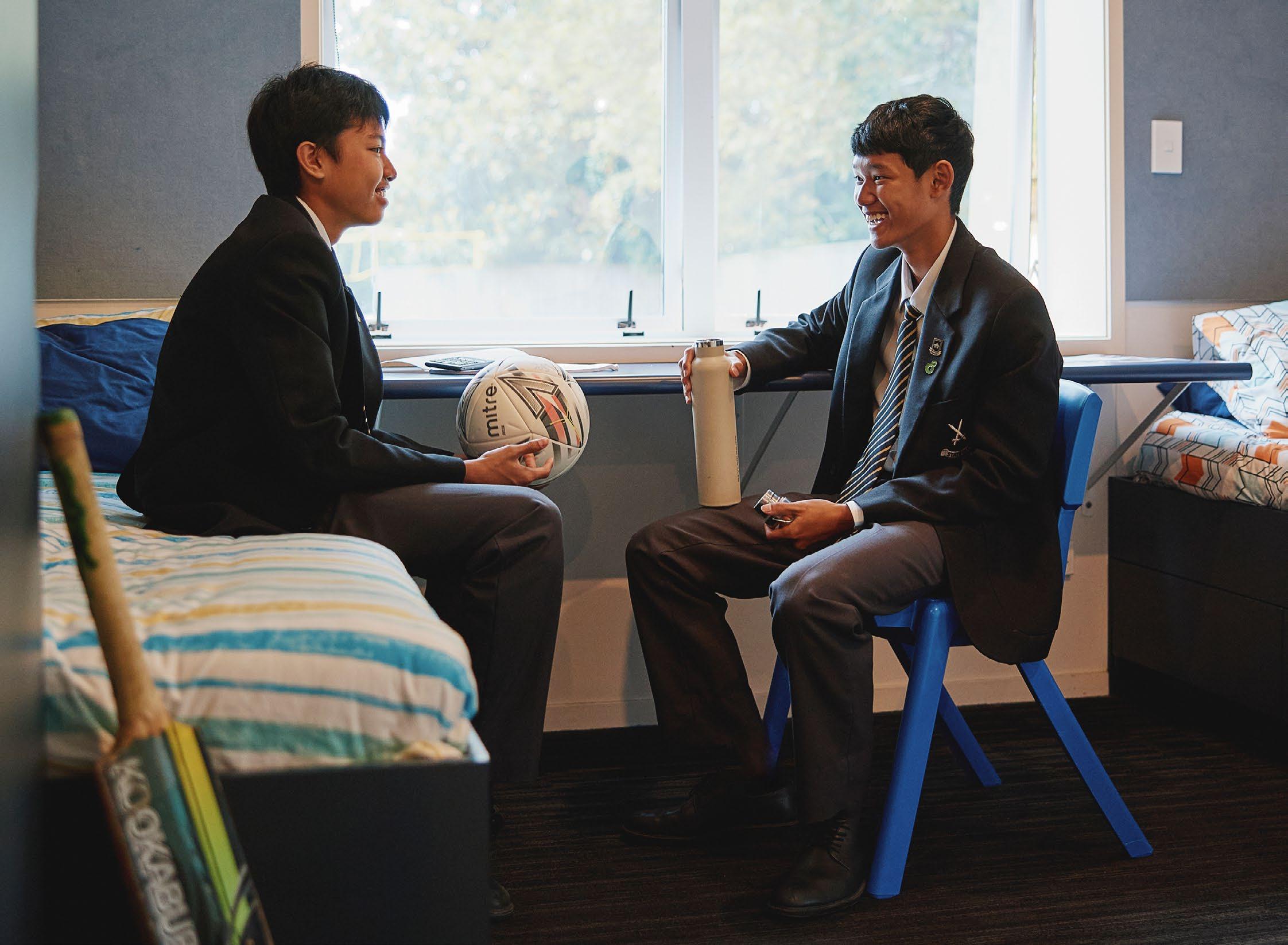
The boarding environment at St Paul’s Collegiate School is one of the most modern in the country, creating a home-awayfrom-home for students, and one that boasts valuable programmes like scheduled and supervised homework, a strong pastoral care system and seven day boarding.
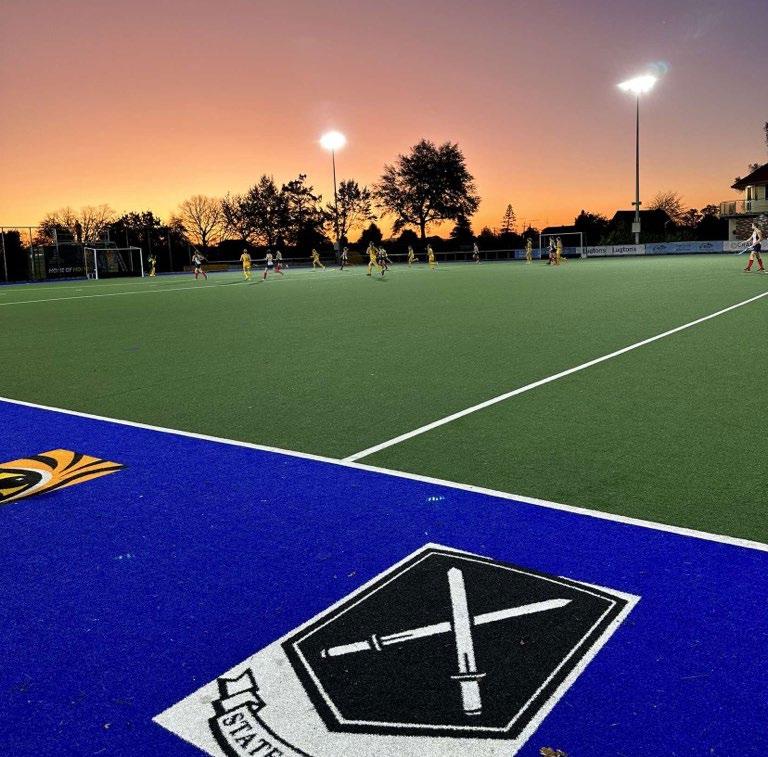
All of St Paul’s boarding houses have been recently renovated. Boarding students enjoy modern bathrooms, age appropriate sleeping accommodation and a large dining hall. Students also have after-school access to squash and tennis courts, a fully-equipped gym, a heated 25-metre swimming pool and an international specification water hockey turf.
St Paul’s offers its boarders a structured approach to homework through supervised prep time. Homework (prep) is done in the dining room under the supervision of a housemaster.
Boarders spend up to 90 minutes each week night at prep, where senior students, academic tutors and teaching staff are available to help. The opportunity also exists for our
boarders to work collaboratively together. This approach helps our boarders to develop the kind of study habits that are essential for academic achievement.
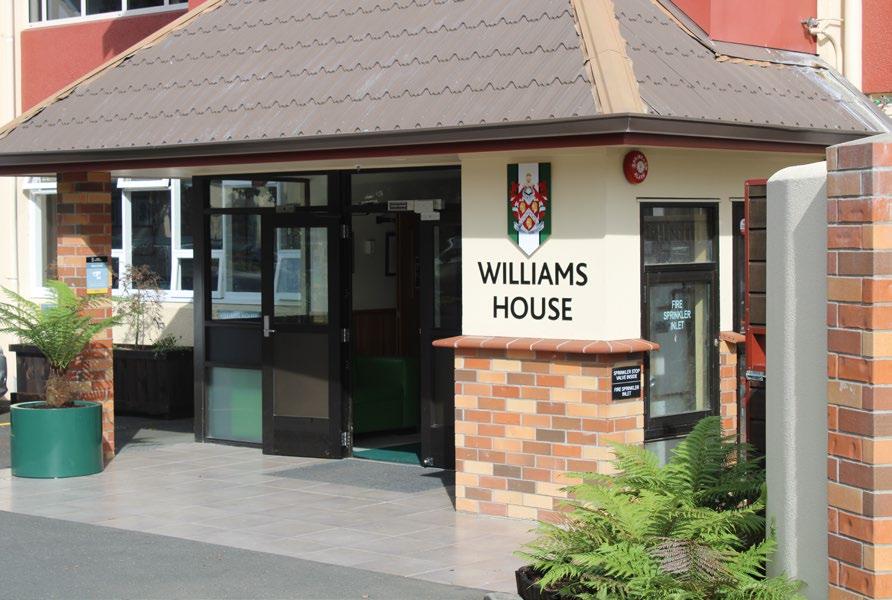
Each boys’ house can accommodate up to approximately 90 students with each year group in its own dorm area for year levels (Year 9-13). Houses are staffed by a housemaster, deputy housemaster, assistant housemaster, matron and residential assistants. The three boarding houses for boys are called Williams, Sargood and Clark.
The boys dormitories are structured according to their year level:
• Year 9, 10 and 11 share dormitories
• Year 12 boys are in rooms of two students
• Year 13 boys have their own room.
The girls’ boarding house, Harington House, is structured to meet the needs of female students and houses more than 80 girls. Harington is a modern boarding facility with each girl in a single room. There are a number of common rooms where girls can meet socially and relax. Kitchen facilities are available for the girls to use for breakfast and snacks. Lunch and dinner is provided in the dining hall with the boys.
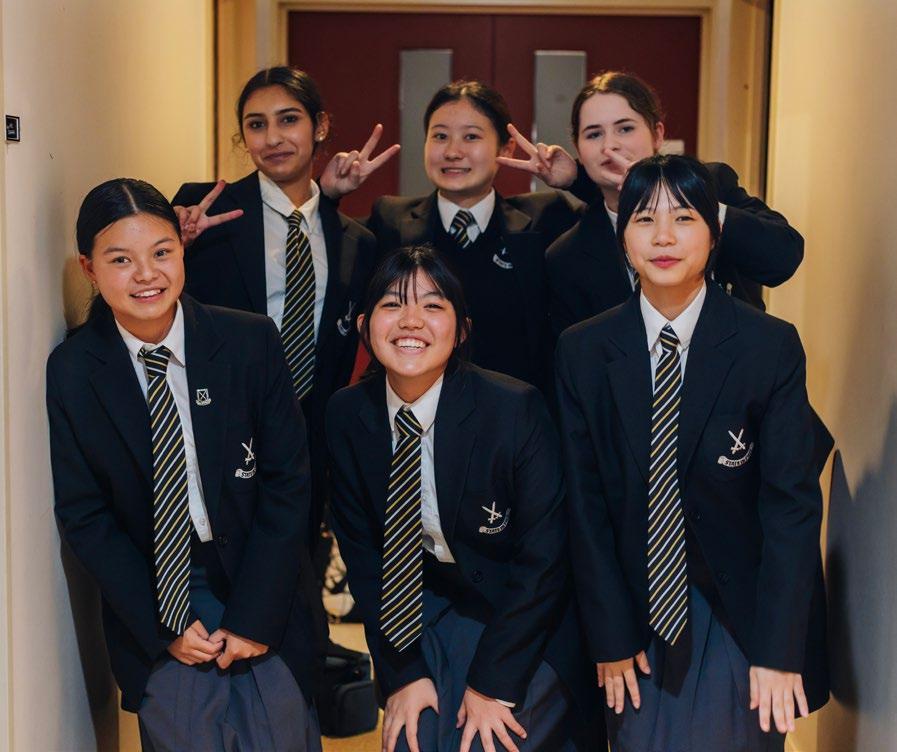
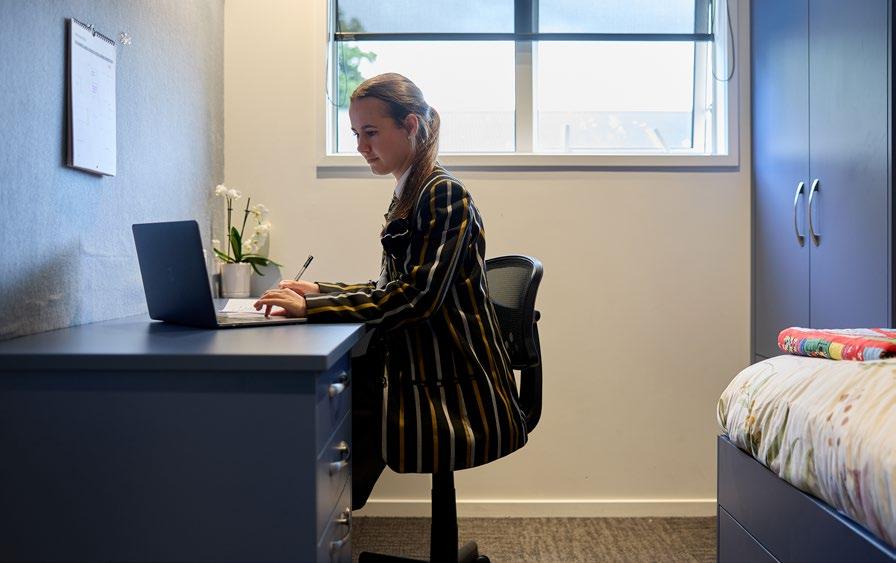
All Year 13 boarding girls get to experience HULA, which is short for Harington University Learning Accommodation. The HULA houses are situated adjacent to Harington House and accommodate four Year 13 Harington House boarding students at any one time. Each group of girls live together for about five weeks in a “flatting” situation, which provides a taste of what it is like to live with others in a semi-independent, but monitored, environment.
Girls have their own bedroom and each pair of bedrooms is connected by a shared bathroom. Each HULA residence is fully equipped and the girls are each expected to prepare dinner one night a week, do their own laundry, and keep the facility clean and tidy according to a roster. The aim is to provide a homely environment while providing a degree of independence and accountability.
A student also has the option of living with a New Zealand family. This can be full time or during leave weekends and school holidays. All host families undergo a strict application process, including a police check, and are visited and approved by the school. The school must be satisfied that the homestay caregiver will provide a safe physical and emotional environment. The school expects students to live by the rules of the household and as a member of the family.
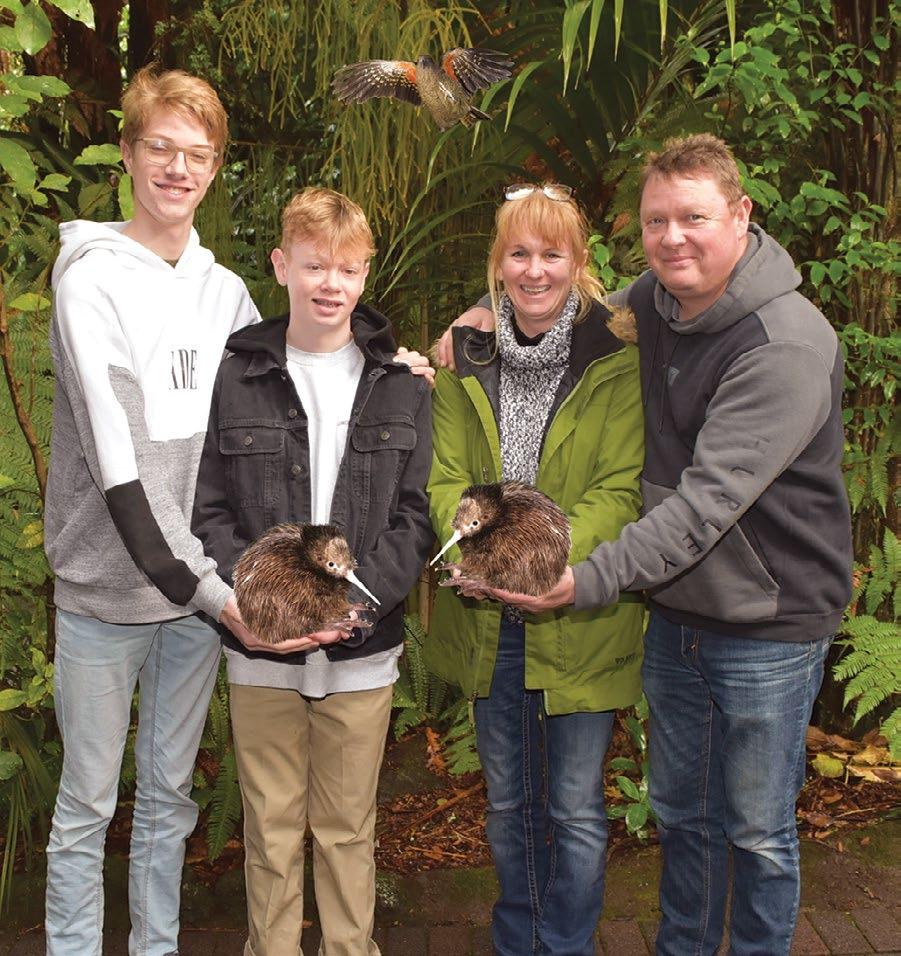
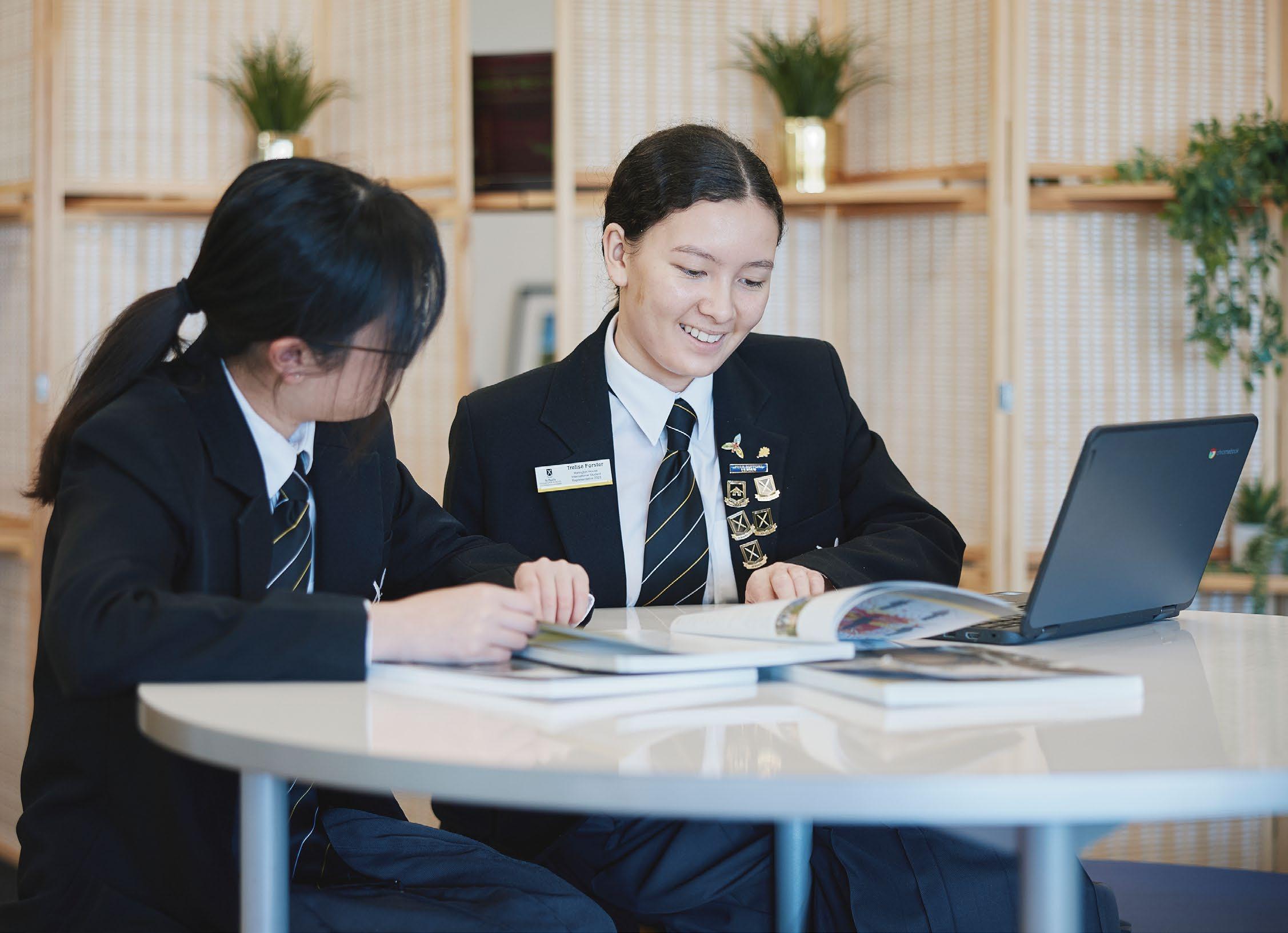
In New Zealand, schooling begins with primary school (Years 1–6, ages 5–10), followed by intermediate school (Years 7–8, ages 11–12), which provides a transition between primary and secondary education. Students then move into secondary or high school (Years 9–13, ages 13–18), where they work towards national qualifications such as NCEA, preparing them for university or other tertiary study in New Zealand and around the world.
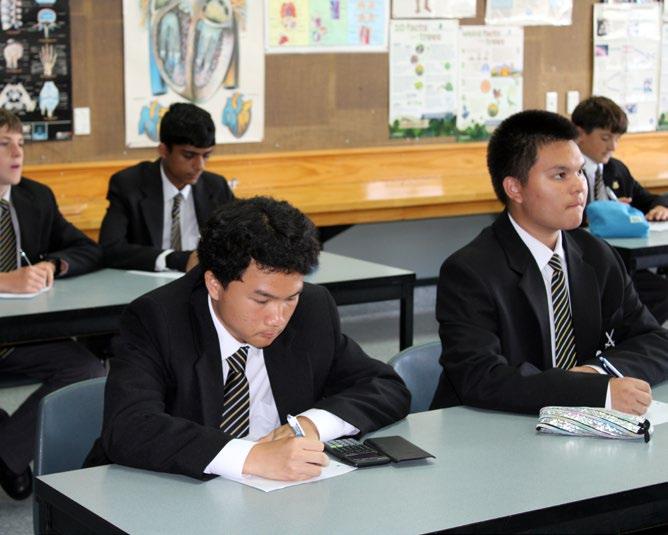
The New Zealand secondary school year starts at the end of January and ends in early December. It is preferred that students in Years 11 to 13 attend school from the beginning of the year. There is 38 weeks of study spread over four terms.
All lessons are in English and international students undertake a full course of study alongisde New Zealand students.
All international students are required to have a basic understanding of English. ESOL (English for Speakers of Other Languages) tuition is available daily. Classes are small and all students receive an individual learning plan.
The Year 9 programme consists of 30 periods (classes) per week. The courses are:
• Mathematics - 8 classes in 10 days
• Science - 8 classes in 10 days
• Social Studies - 8 classes in 10 days
• English - 7 classes in 10 days
• PE and Health - 6 classes in 10 days
• Graphics/Digital/Technology (on rotation) - 5 classes in 10 days
• Art/Drama/Music (on rotation) - 5 classes in 10 days
• French OR Spanish OR Literacy/Numeracy - 4 classes in 10 days
• Masterclass Option - 4 classes in 10 days
• Religious Education - 3 classes in 10 days
• Te Reo and Tikanga Maaori (compulsory) - 2 classes in 10 days
Students follow a compulsory core of English, Mathematics, Science, Social Studies, Physical Education, Health, Religious Studies and Te Reo. Students rotate through both technology and art options. Technology involves Digital, Materials and Design and Visual Communication. The arts include Music, Drama and Art.
All Year 9 students take either a foreign language or a literacy and numeracy course. This course allocation is decided during Term 1 Orientation.
All students can choose two Master Class subjects for half a year. Some examples of these classes are: Sculpture, Video Motion Graphics, Public Speaking, Sustainable Cities, Psycho Babble and Architectural Design.
The Year 10 programme consists of 30 periods (classes) per week. The courses are:
• Mathematics - 8 classes in 10 days
• English - 8 classes in 10 days
• Science - 8 classes in 10 days
• Social Studies - 8 classes in 10 days
• Option 1 - 7 classes in 10 days
• Option 2 - 7 classes in 10 days
• Option 3 - 7 classes in 10 days
• PE and Health - 5 classes in 10 days
• Religious Education - 2 classes in 10 days
The Year 10 option classes include: Art, Athlete Development, Digital Technology, Drama, DVC (Graphics), Enterprise Studies, French, Music, Spanish, Technology and Te Reo Maaori. Option classes are not necessarily offered in each option line and operate dependent on viable class numbers.
Students spend 12-18 weeks of the school year at our Tihoi Venture School campus and the balance at our Hamilton School campus. At both campuses, they follow a core of English, Mathematics, Science, Social Studies and at the Hamilton campus, they also study Physical Education, Health and Religion and three additional options. While at Tihoi, in addition to their studies, they take part in an intensive outdoor programme.
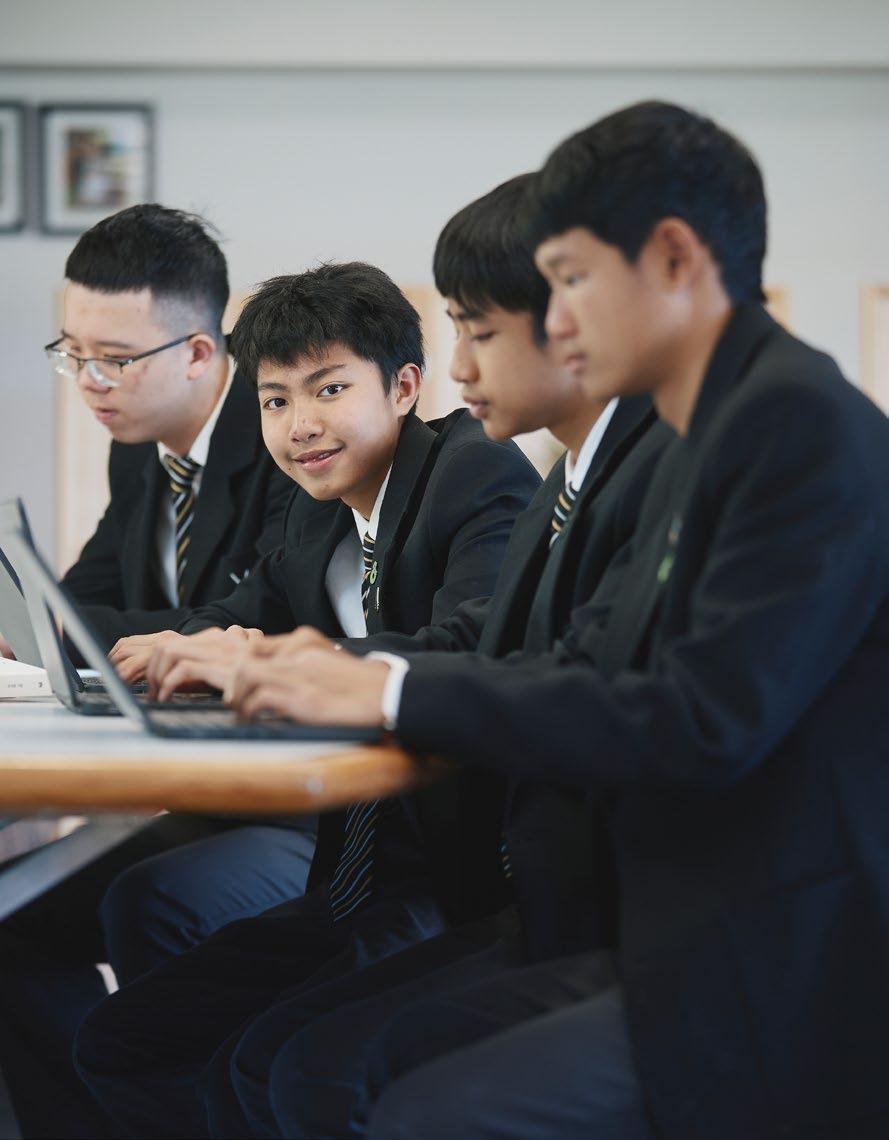
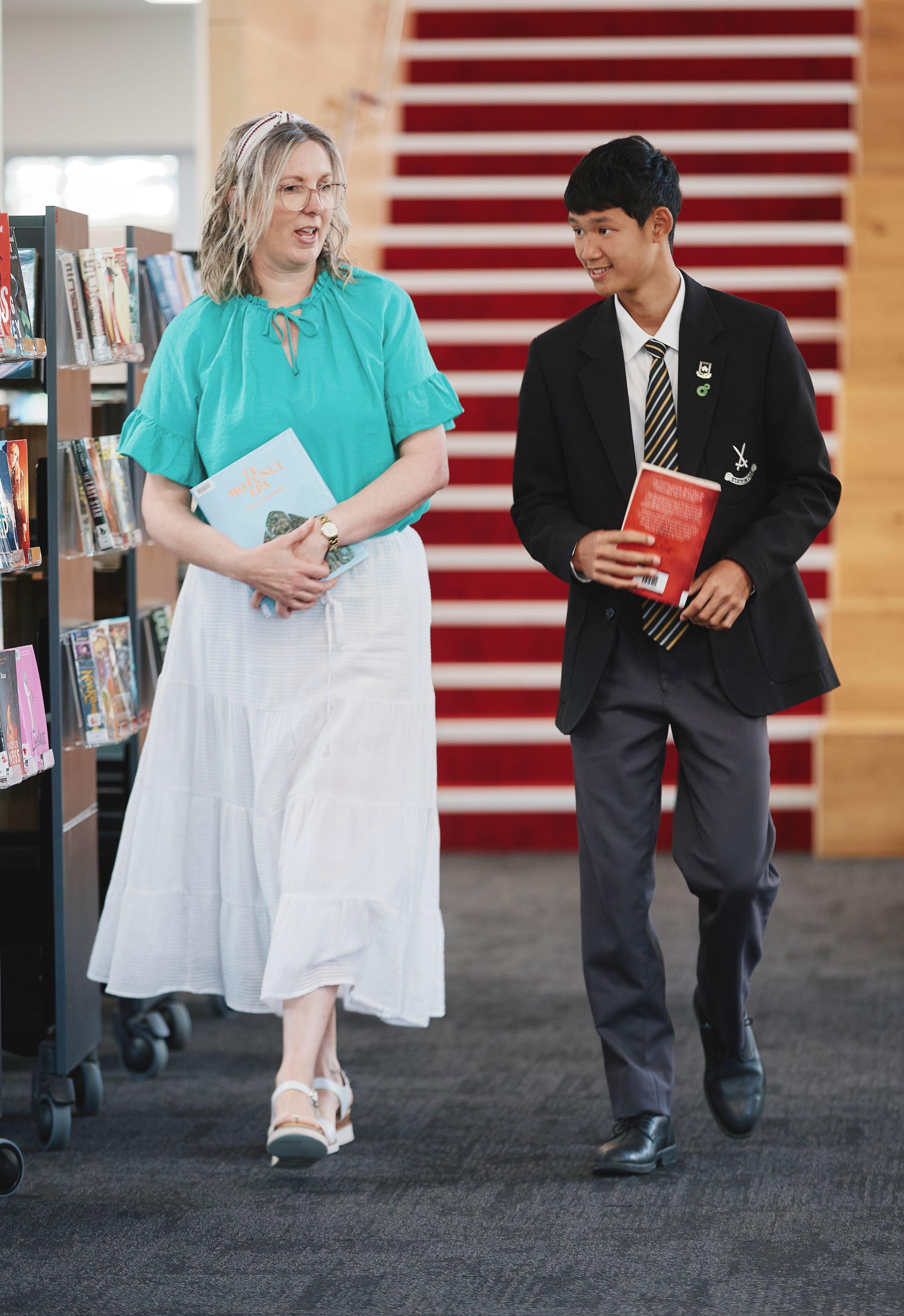
“International students enjoy being fully integrated into school life and value the broad range of experiences on offer. The school ensures that relationships and communication channels are established and maintained to support student wellbeing. Students feel supported by other students and staff at the school.”
EDUCATION REVIEW OFFICE (ERO) 2022
At St Paul’s, our small class sizes are an average of just 20 students, meaning every young person is known, supported, and encouraged to succeed. In the senior school, classes are often even smaller, allowing teachers to give focused guidance and adapt their teaching to suit each student’s learning style and goals.
For international students, this close attention is especially valuable. It ensures strong academic support, helps build confidence in English, and provides the encouragement needed to adjust to a new learning environment. Teachers not only deliver subject knowledge but also take the time to understand each student’s strengths, challenges, and aspirations, guiding them towards success at school and beyond.
Small classes are a core part of the St Paul’s experience, giving every student the opportunity to thrive and prepare for leading universities worldwide.
At Year 11, students at St Paul’s work towards the St Paul’s Diploma, a holistic qualification that recognises both academic progress and wider contributions to school life. The programme provides a strong foundation for senior study while encouraging personal growth, resilience, and engagement in co-curricular and service activities.
In Year 12, students focus on NCEA Level 2 qualifications or begin Cambridge International A Levels, while continuing to extend themselves through the St Paul’s Diploma. A broad range of subjects and pathways are offered, allowing students to specialise in their areas of interest while developing the skills and confidence required for future study.
Year 13 is the culmination of a student’s academic journey at St Paul’s, with pathways through NCEA Level 3, University Entrance, or Cambridge International A Levels. Students are supported to achieve academic excellence while preparing for life beyond school, whether at university or in other chosen careers. Leadership opportunities and the Diploma framework ensure they leave St Paul’s as well-rounded, capable young adults.
In New Zealand, high school students study for the National Certificate of Educational Achievement (NCEA). Students earn credits through classwork during the year and national exams at the end of the year. NCEA is accepted by universities in New Zealand and in many other countries, including Australia, the UK, and the USA. This means students can use NCEA to continue their studies in New Zealand or around the world.
For more information see: www.stpauls.school.nz/page/academic

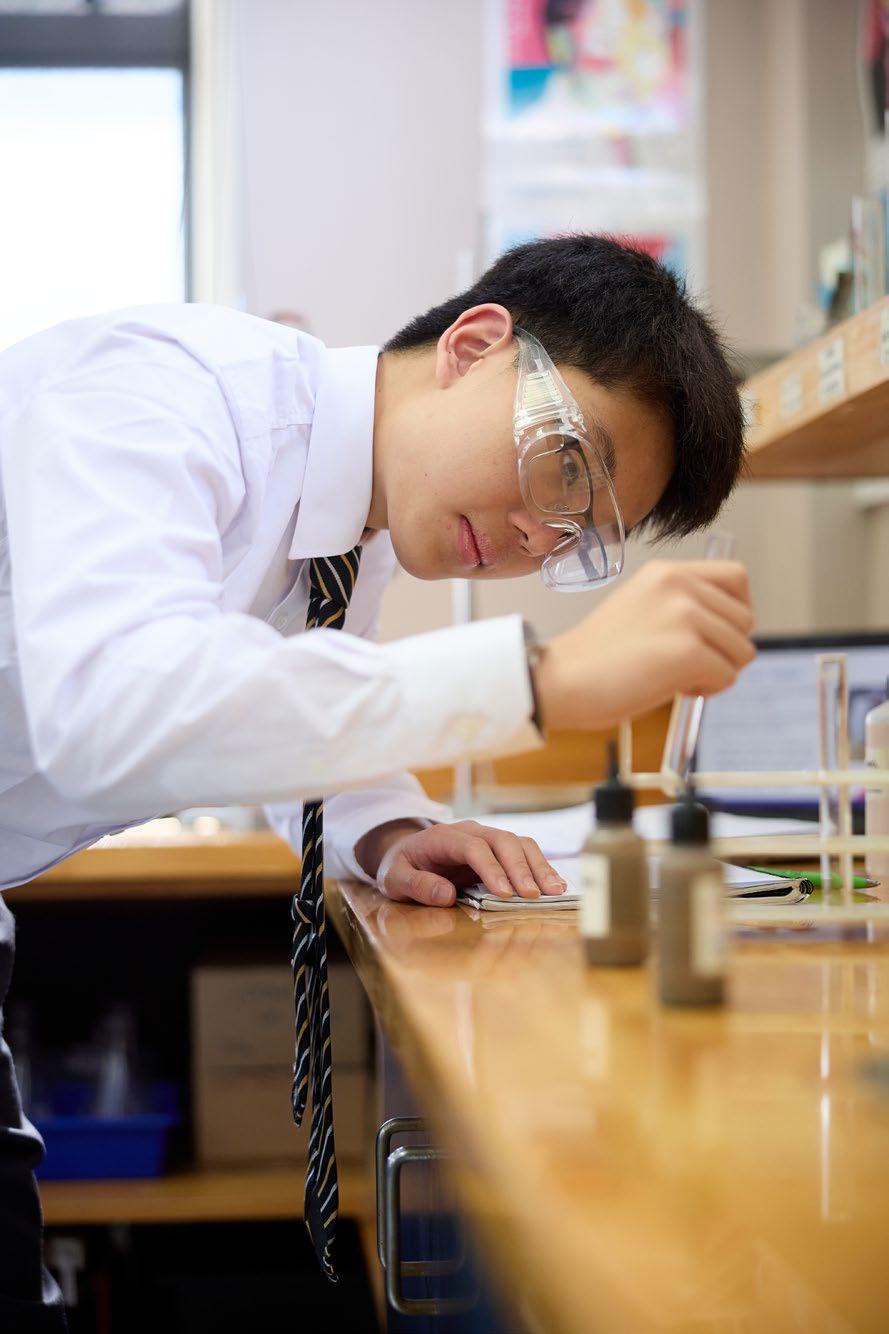
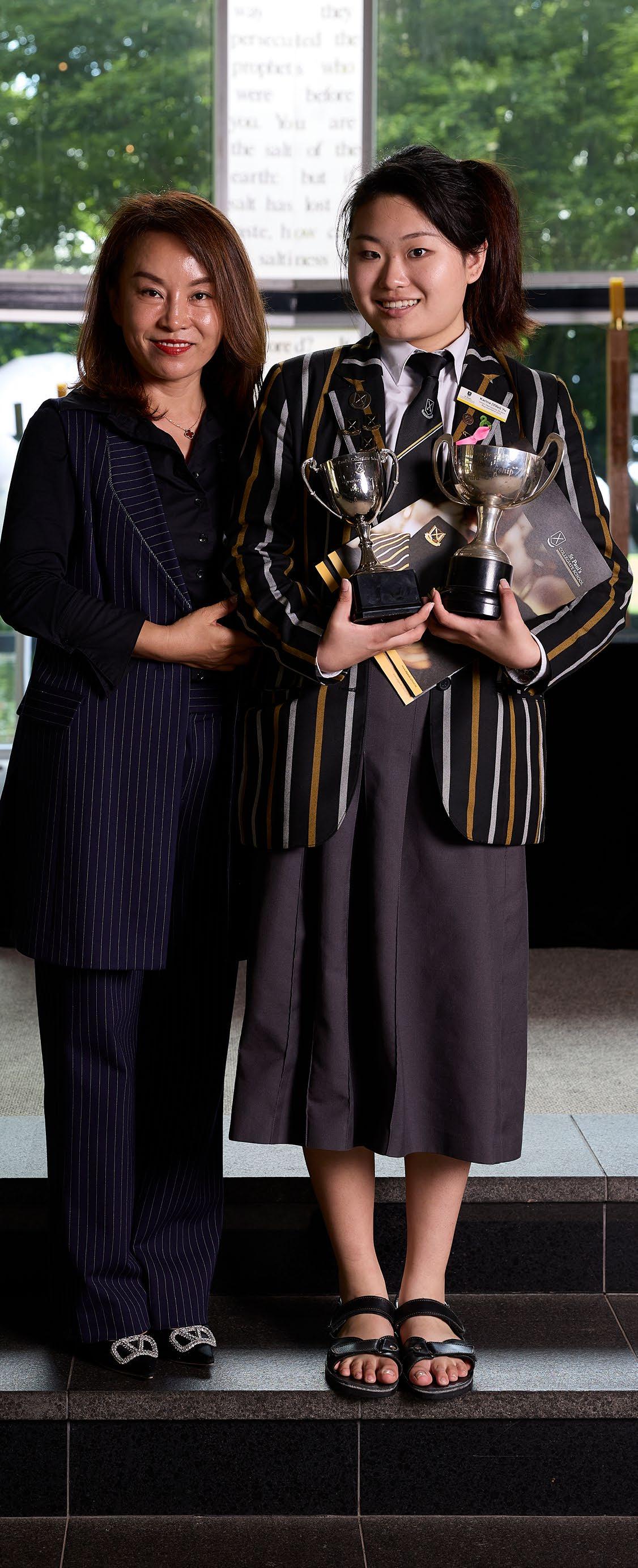
Approximately 99% of our international students annually will go on to tertiary study around the world.
Australia: Macquarie University
Monash University
Sydney University
New South Wales University
USA:
The University of Alabama, Birmingham
Berkley University
Harvard University
Stanford University University of Tennessee
University of Miami
San Francisco State University
American
Scholarship Group
Pennsylvania
UK:
Queen Mary University of London
London University
Manchester University
Surrey University
University of the Arts London
Cambridge University
Kings College
London
Birbeck University
Durham University
Imperial College Business School
Central St Martins
University of Arts
London
Coventry University
Korea: Suny University
Japan: Hosei University
Wakayama University
Waseda University
Thailand: Chulalongkorn University
Thammasat University
Mahidol University
Rangsit University
Kasetsart University
Silpakorn University
New Zealand:
Auckland University of Technology
Lincoln University
Massey University
University of Auckland
University of Canterbury
University of Otago
University of Waikato
Victoria University of Wellington
Sport is an essential part of student development at St Paul’s with participation in both summer and winter sport a compulsory part of school life. St Paul’s sports programme caters to students of all abilities – from those less sporty to those who are hopeful of pursuing sport as a career by utilising St Paul’s High Performance Sports Programme. Participation in sport allows students to experience individual success, to develop a better understanding of their own and others emotions, recognise the power of teamwork, personal discipline and how to cope in a healthy competitive environment.
St Paul’s has first-class sports facilities including an international spec hockey turf, tennis courts, squash courts, heated 25m swimming pool, gymnasium, basketball, volleyball courts and extensive outdoor playing fields.
Summer sport
Athletics
Badminton
Clay Bird Shooting
Cricket
Cycling
Canoe Polo
Futsal
Golf
Mountain Biking
Rowing
Sevens Rugby
Rock Climbing
Rugby
Squash
Swimming
Tennis
Touch Rugby
Water Polo
Volleyball
Winter sport
Badminton
Basketball
Golf
Clay Bird Shooting Cross Country
Cycling/Multisport
Hockey Lacrosse Netball
Rugby Football
Rock Climbing Squash
Table Tennis
Water Polo
Weight Training
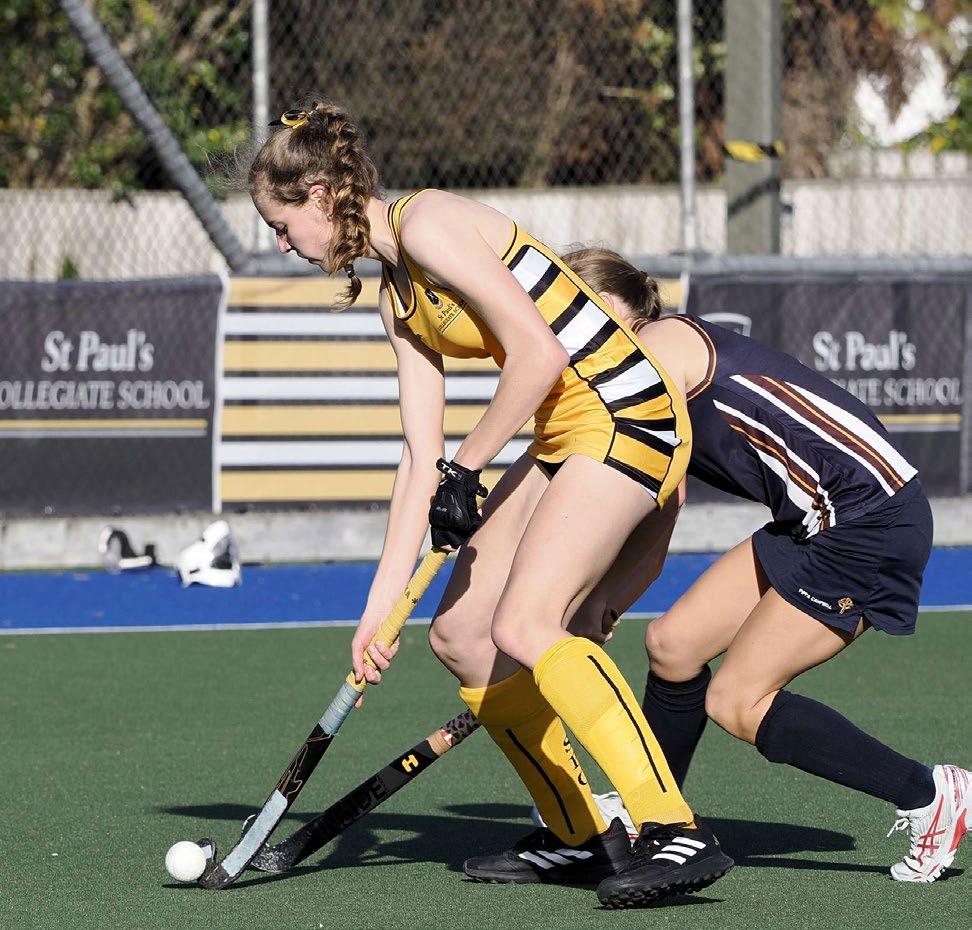
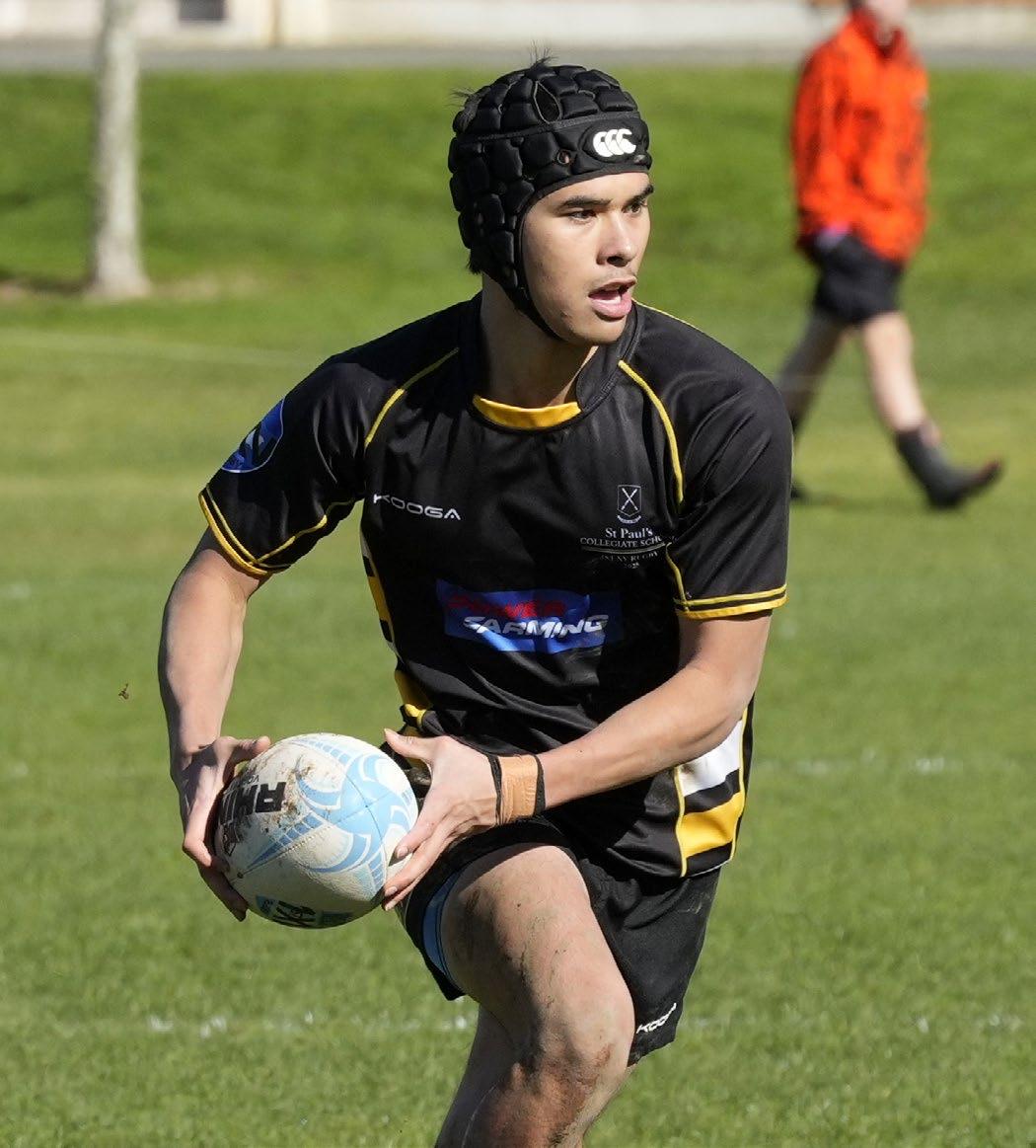
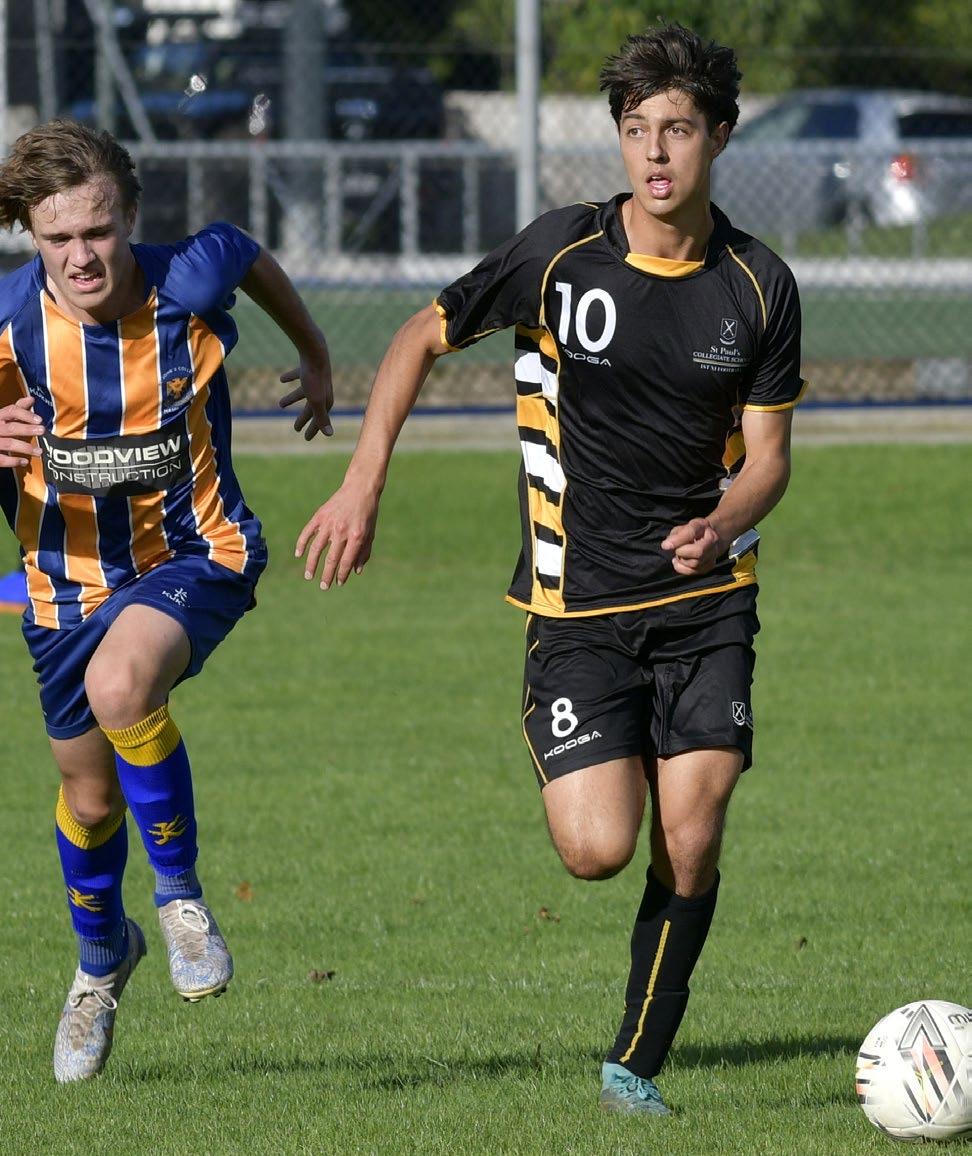
There is a range of options to access Visual Arts at St Paul’s across several media, including: General Art (Year 9-10), Design (Year 11-13), Painting (Year 11-13), Photography (Year 11-13) and Printmaking (Year 11-13).
Senior students are supported with quality mentorship and resources to produce artwork that is fit for the NZQA Visual Arts curriculum. Many St Paul’s Art students take the opportunity to sit Scholarship Examinations with high levels of success.
A number of students in recent years have been invited to have their work in the prestigious NZQA Top Art exhibition.
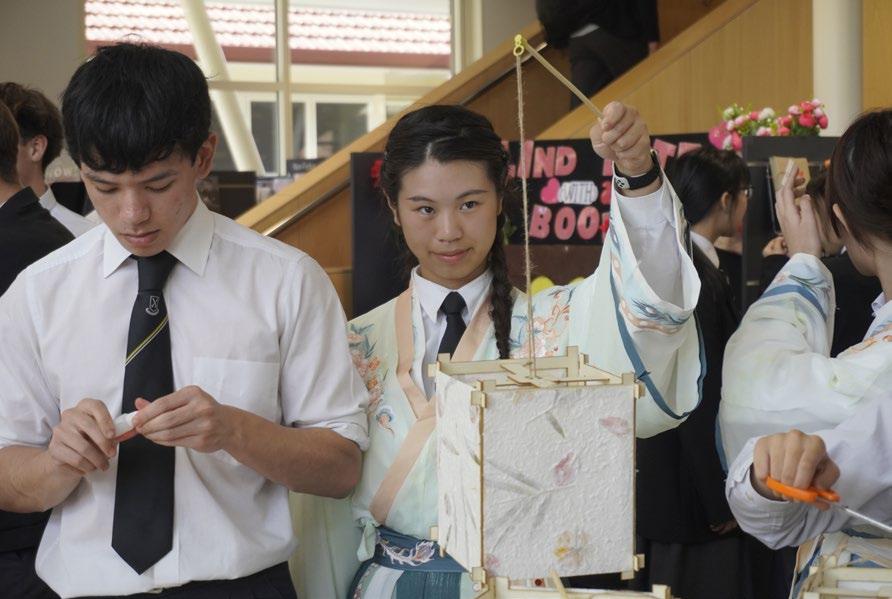
Music is available to all students (Years 9-13). In Year 9, music is a compulsory subject that forms part of the core Year 9 curriculum. Students in Years 10-13 are given the option to choose music as an elective.
Through St Paul’s itinerant music scheme, students can choose to learn one of the following musical instruments (in addition to the academic curriculum): piano, organ, voice, violin, cello, drums, guitar, clarinet, saxophone, flute, bassoon, trumpet, trombone, tuba, horn, ukulele, euphonium and banjo.
Music groups include: Choir, Big Band, Concert Band, Rock Band, String ensemble and Chamber ensembles.
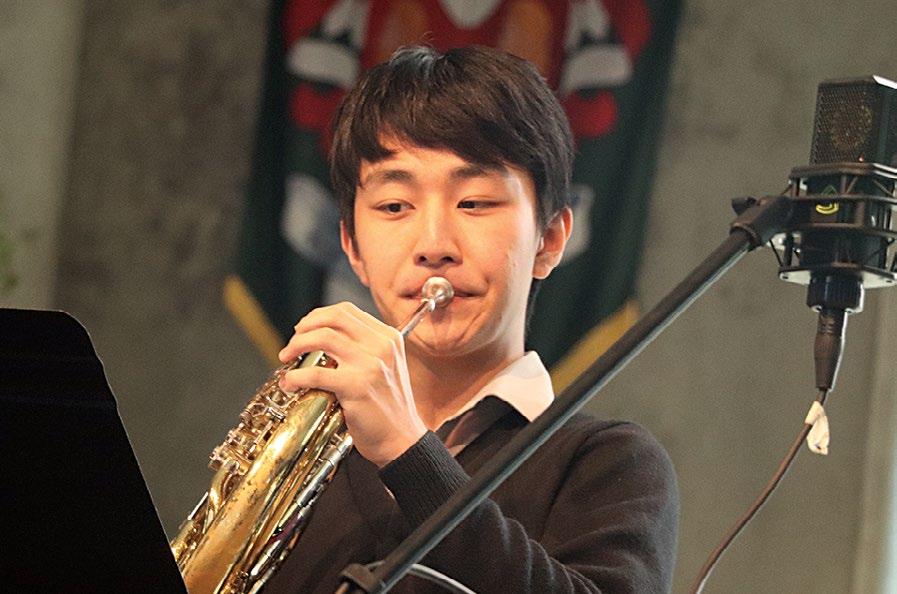
In Year 9, all students are required to participate in drama as a compulsory subject and in Years 10-13 students have the option to choose drama as a subject in addition to the core curriculum.
St Paul’s showcases a school production each year which highlights the musical and acting talents of our students. Over the years some memorable productions have been Grease, Les Misérables, Legally Blonde, Oklahoma, Jekyll and Hyde, and The Wizard of Oz.
St Paul’s has a purpose bulit dance and drama studio with a sprung floor and additional break off rooms.
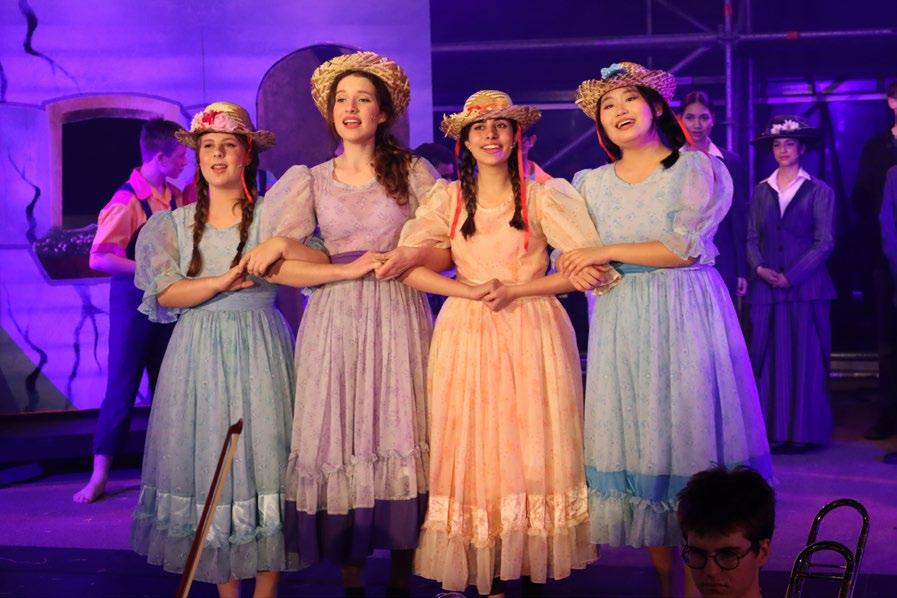
Christianity plays an important role in life at St Paul’s and spiritual activities are based on the Anglican ethos. However, we celebrate diversity within our school community and members of all denominations and religions are welcome.
Students also have the opportunity to learn about one of the original cultures of New Zealand (Maaori culture) through participation in language classes, the Kapa Haka group and special events held with the whole school.
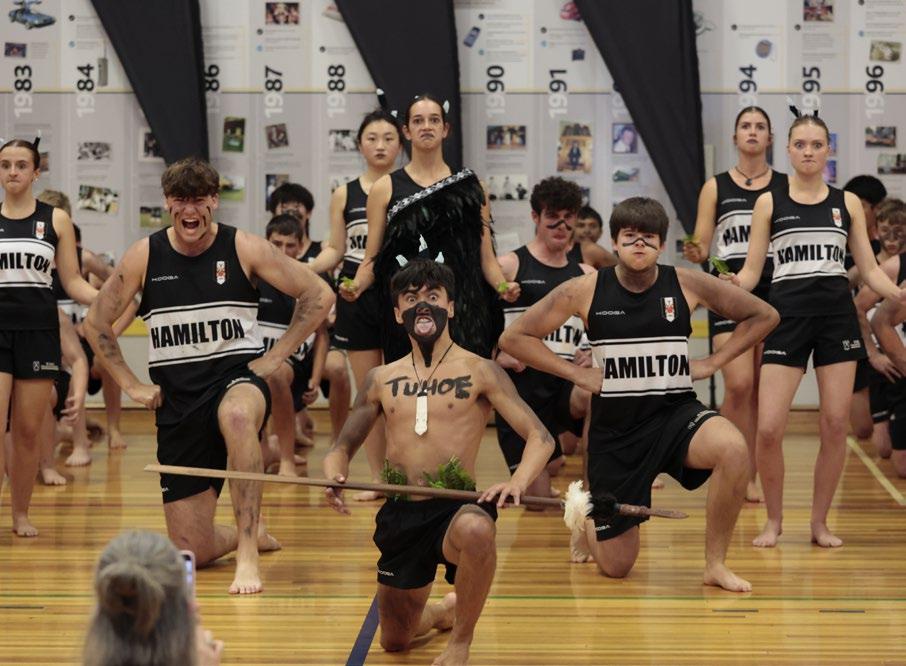
Students at St Paul’s engage in voluntary service activities that build character and give back to the community. They support local schools, assist charities like the Refugee Orientation Centre, teach at rest homes, help at Waikato Hospital, and contribute to food programmes for families in need. Each year, students travel to Cambodia to support education projects for children who have missed schooling. These experiences foster empathy, leadership, and a strong sense of social responsibility.
Students spend lunchtimes helping in local primary schools – Bankwood and Fairfield. This engagement includes coaching sports, helping with reading and music or simply eating lunch with the students.

Through a partnership with the Fairfield Community Project 'Te Whare O Te Ata', the community fridge ensures the delivery of fresh vegetables, fruit and meat to local families surrounding the school who are in need. Staff, students and school families stock the fridge located in the chapel for delivery to the Fairfield Project.
Year 11 students are encouraged to find a charity that interests them and volunteer their time to help that charity reach a goal. The programme has established a partnership with the Refugee Orientation Centre Trust – a not-forprofit organisation helping refugees settle into life in New Zealand. The students volunteer for the Centre’s afterschool homework programme, which helps primary-aged children get up-to-speed with their academics.
Students assist the Sunday morning programme at the Waikato Hospital’s chaplaincy department by helping with the transfer of patients from the wards to the hospital Chapel for morning worship.
A team of students supported by the school chef and catering staff, plan, prepare and cook a two-course meal for anything up to 80 people. Once prepared this food is taken to The Serve. The Serve is a community project based in Hamilton that serves a substantial evening meal year-round to those in need.
Students teach ukulele on Tuesday lunchtimes and art on Wednesday lunchtimes to the elderly residents of St Joan’s rest home.
A group of students travel each year to Cambodia to work alongside the charitable organisation FLAME, which operates a number of activity centres in Phnom Penh that allow children to attend classes if they missed out on government-provided schooling.
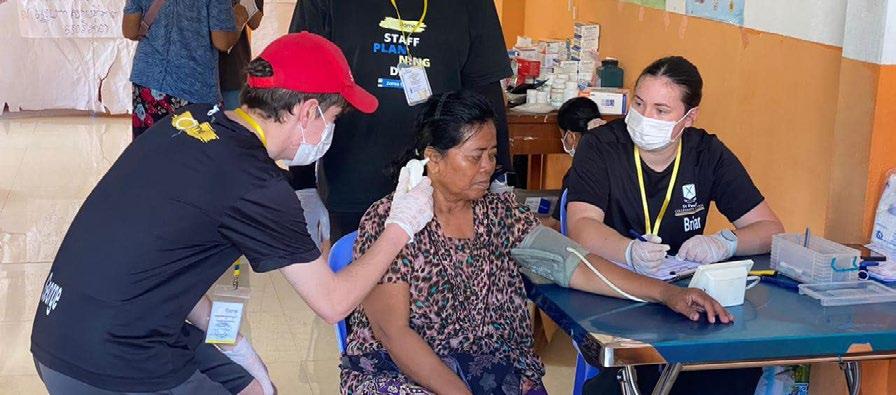
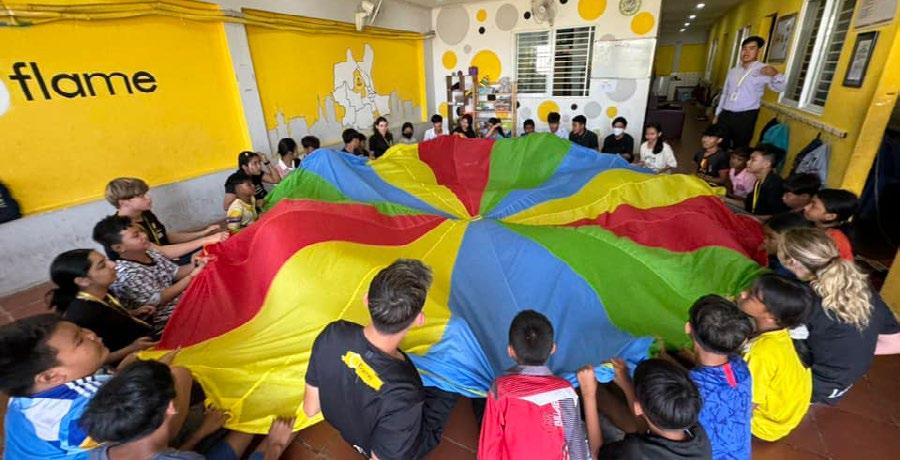
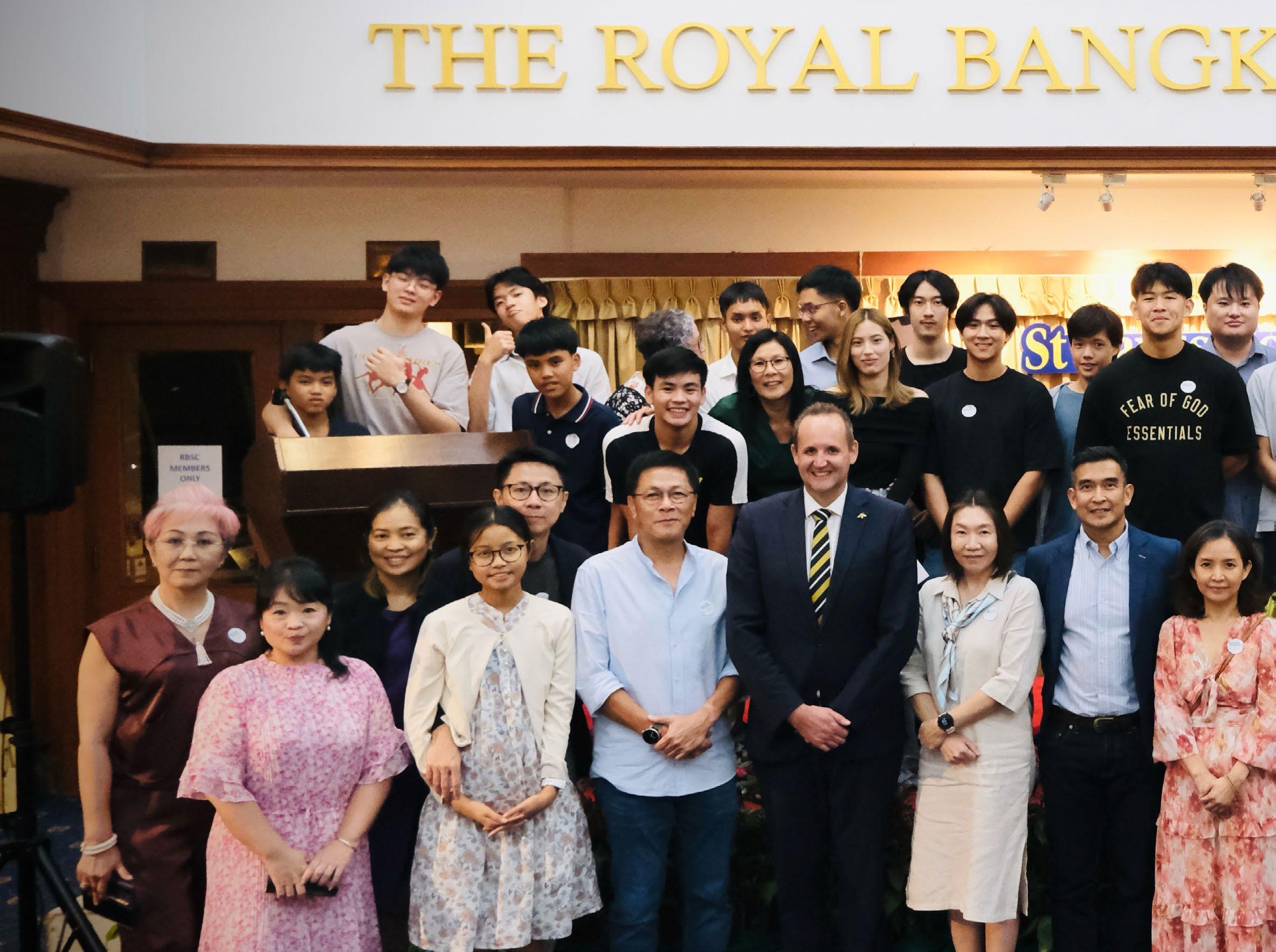
The friendships and connections made at St Paul’s by you as our international students, extend well beyond your time at school. These relationships often become a lifelong source of support, opportunity, and belonging, no matter where in the world you go.
Once you leave St Paul’s, you join a global network of Collegians (St Paul’s alumni) for life. With more than 10,000 alumni worldwide, our international community is uniquely placed to help you stay connected across borders. Whether it’s through networking, professional opportunities, or simply the shared bond of being part of St Paul’s, you will always have a place within this community.
For international Collegians, this means not only staying in touch with classmates, but also connecting with a wider network of alumni who live, study, and work in countries around the world. Wherever life takes you, you will find fellow Collegians who share your journey and are ready to support and celebrate your achievements.
Scan the QR code below to learn more about our Collegian community and how you can contribute:

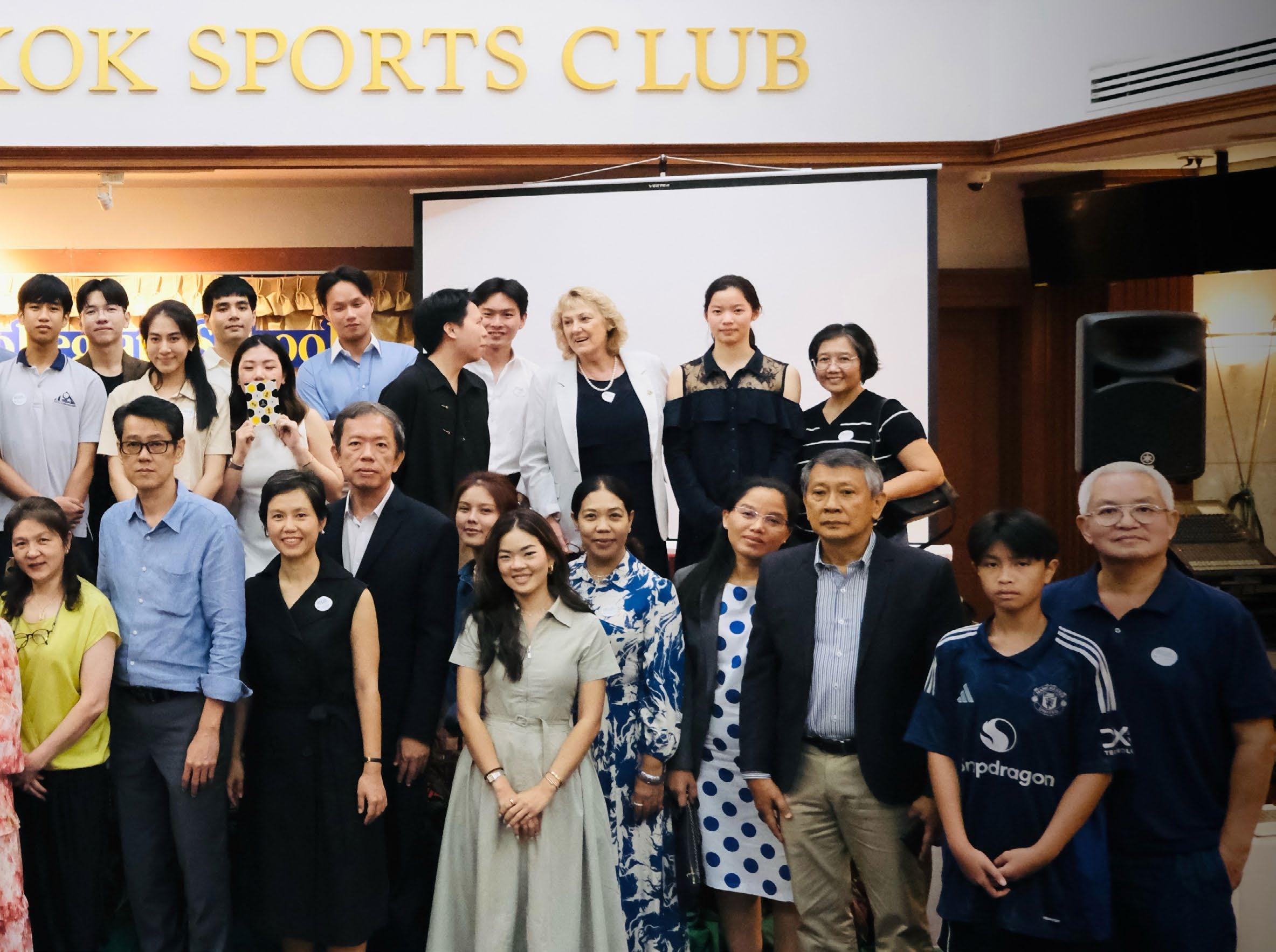
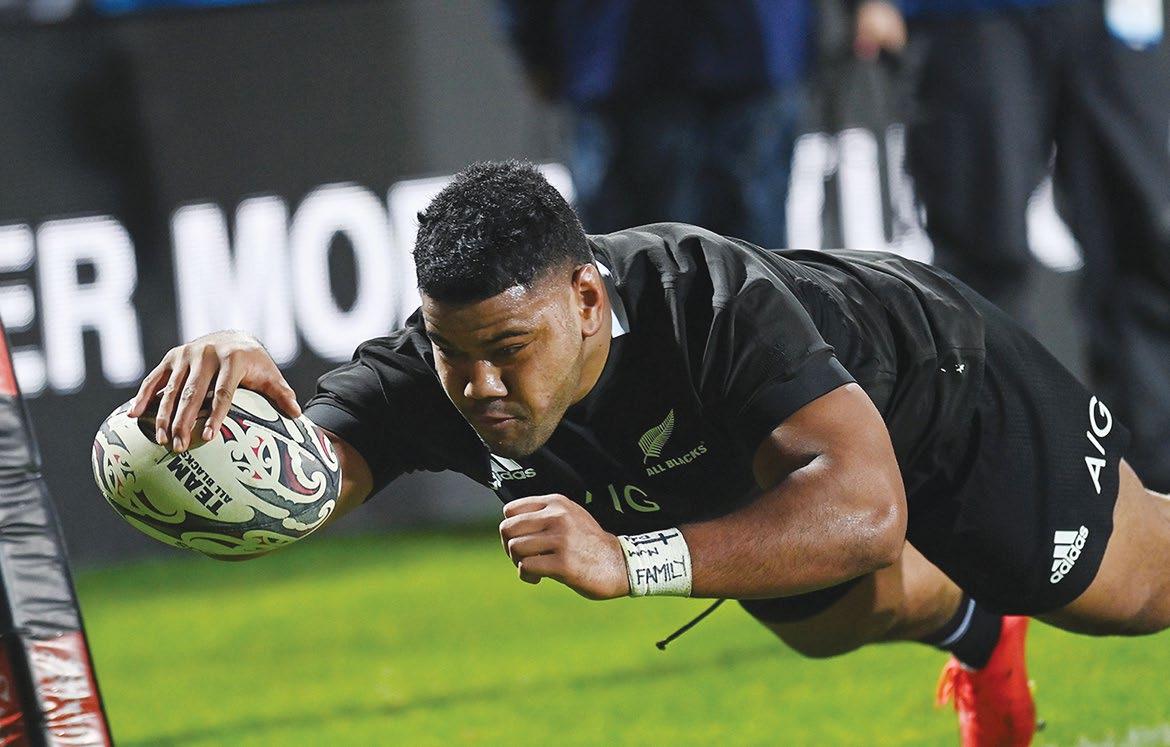
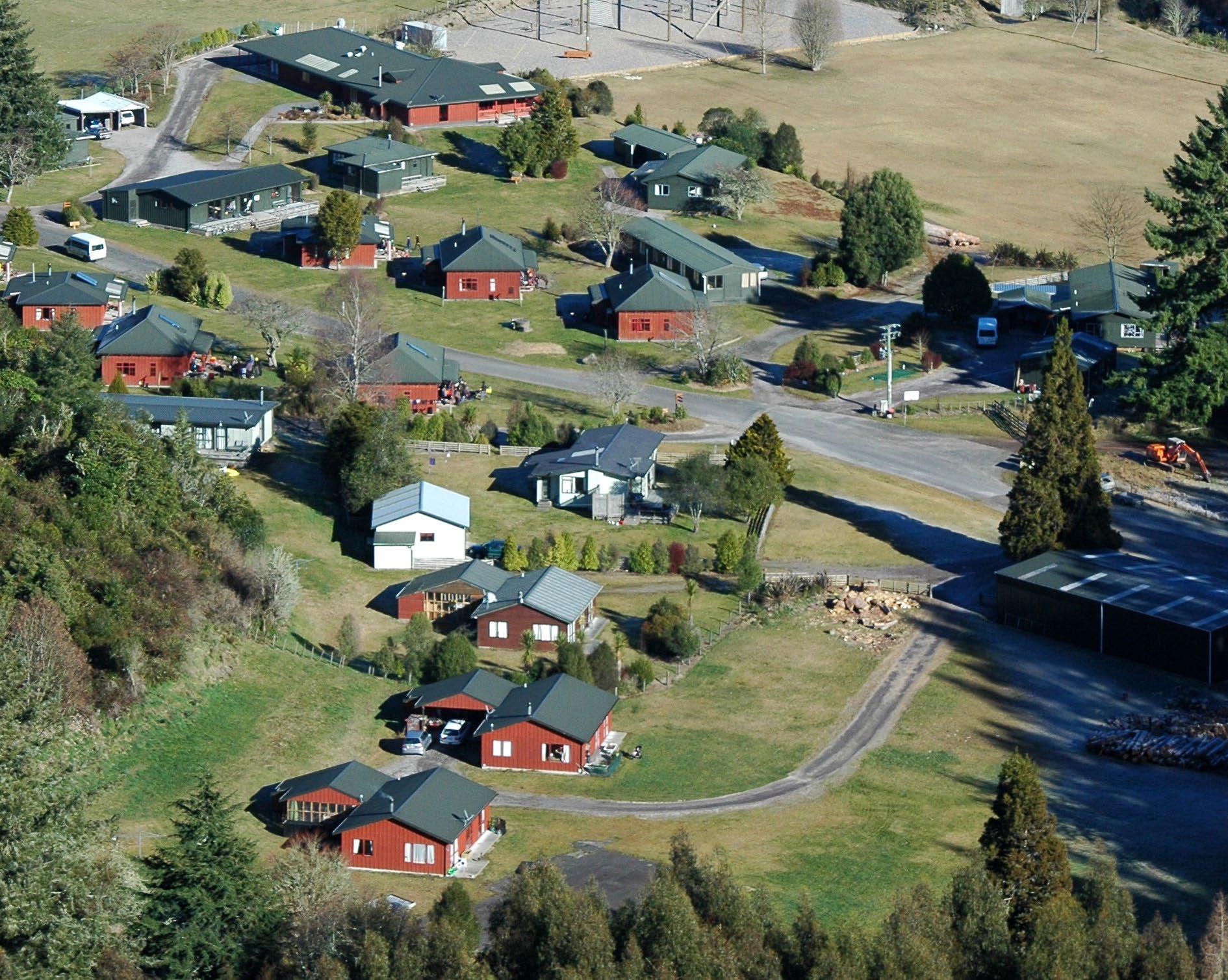
I am especially satisfied with the result of the time my boys spent at Tihoi.
Tihoi is a very unique, well-designed programme for boys to learn life skills outside the classroom and how to contribute positively to others.
Sending my boys to St Paul’s has been one of the best decisions I’ve made. My sons have transformed into confident, mature and happy young men. I am impressed with the support and understanding of all the academic staff and mentors who have been patient and dedicated to my sons.
I am also very lucky to have the best host family who really care for my sons.
-
Mrs
Saranya Chungsuvanich from Thailand (mother of Ben and Bobby Chungsuvanich)
Tihoi Venture School is the remote residential campus for Year 10 students at St Paul’s Collegiate School. Through community living, a quality academic programme and wide ranging outdoor pursuits, Tihoi gives our students the best possible opportunities to grow.
This unique 12-18 week education programme is designed specifically for Year 10 students. It removes them from technology and connects them with the outdoors, their peers and themselves. Not only do they develop outdoor and academic skills, their social development is accelerated through a focus on traditional virtues and a values-based programme of honesty, respect, care and understanding.
Tihoi gives young students confidence, builds their resilience and develops their independence giving them a valuable head start into their senior years and life beyond school.
To find out more about Tihoi Venture School visit stpauls.school.nz/page/tihoi
Students are placed into a three-bedroom self-contained cabin with seven other students where they take responsibility for their own housekeeping and learn to care and work together with other house mates.
Each house of eight students has an assigned teacher who becomes their mentor for the duration of their stay at Tihoi. The house mentor meets regularly with the students teaching and guiding them. Any arising conflicts are valuable learning experiences and students are given formal guidance in solving problems and discussing social issues through sessions with their mentor.
Students keep a journal of their experiences, which is discussed and reflected on in sessions with their journal teacher.
Students learn to communicate better and work together in a back-to-basics environment. Each week, members of each household are given different leadership opportunities and responsibilities for the operation of their house such as cooking, cleaning and chopping firewood. Lunch is served every day in the dining room by the resident chef but breakfast and dinner are prepared in the house by the students for their housemates.
Digital technology such as mobile phones, iPads and tablets are not permitted at Tihoi. The only exception is in the classroom where students use Chromebooks to complete their schoolwork.
Letter writing is an essential component of the Tihoi programme. Once a week the students are expected to hand write a letter home as a way of expressing themselves and keeping in touch with their family.
During the 12-18 week programme, the students go home for mid-term breaks and school holidays.
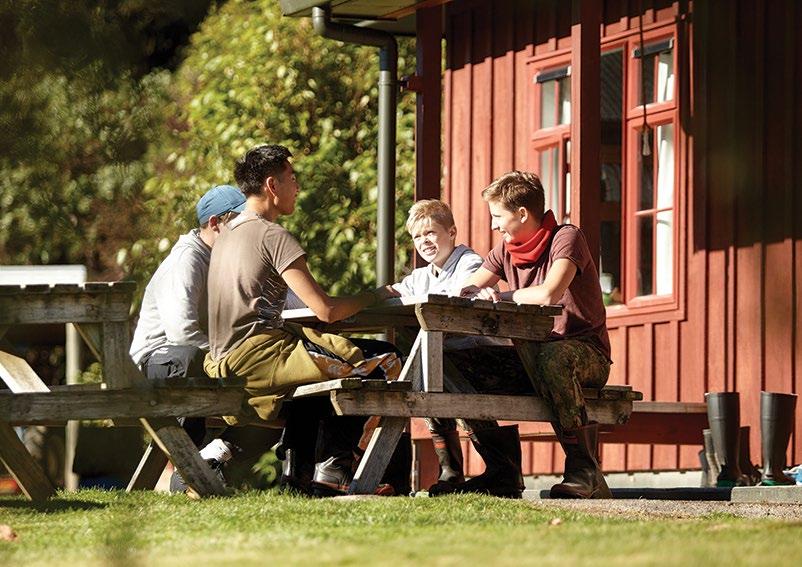
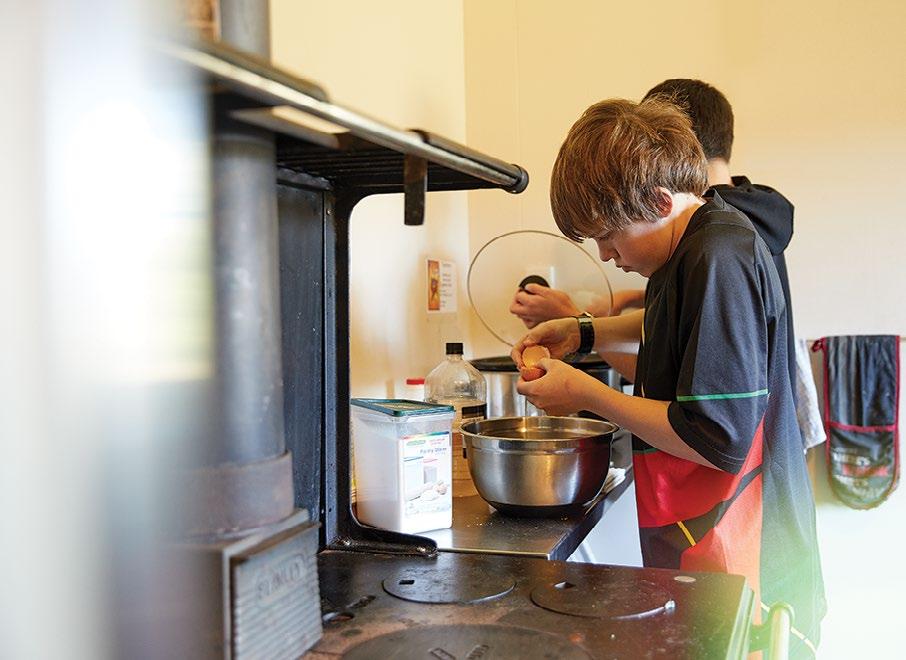
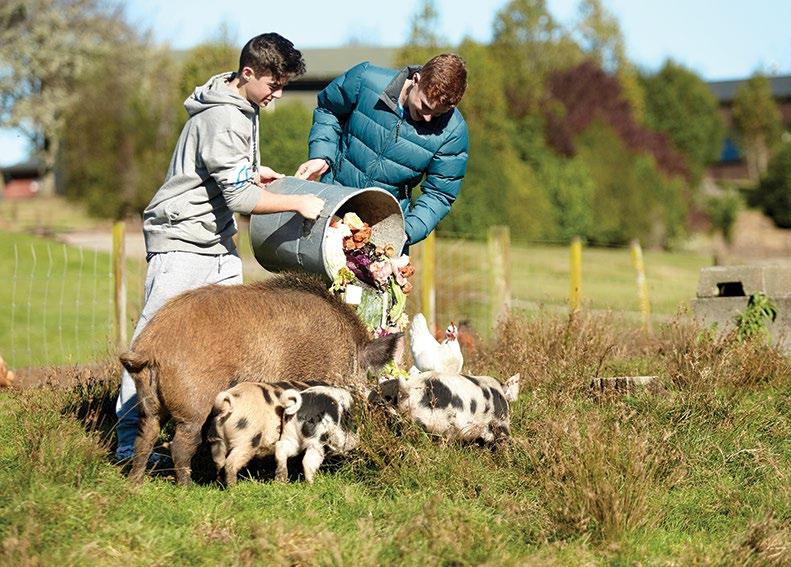
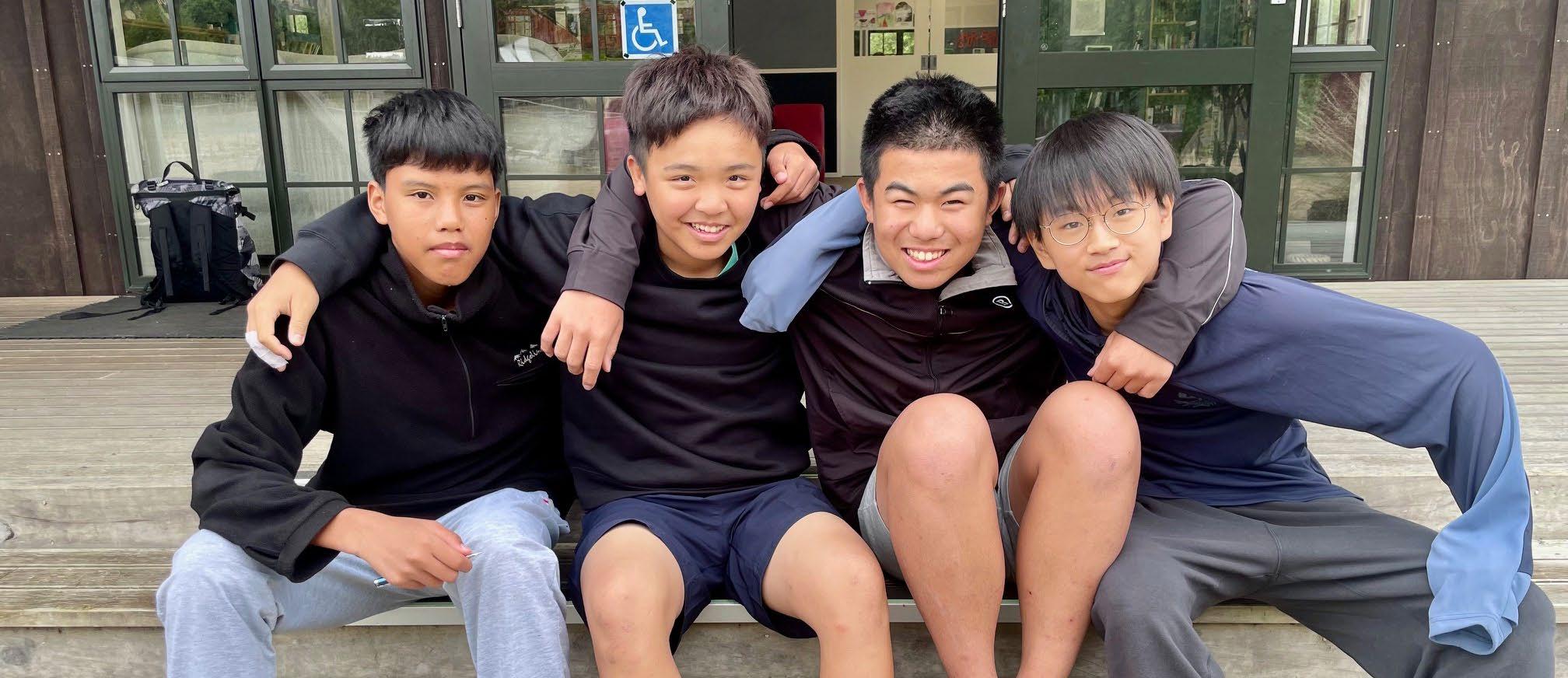
Tihoi Venture School operates a seven-day week programme based on a mix of classroom and experiential learning styles, as students are given the opportunity to learn from the environment they live in. Academic standards are maintained in all subjects and technology is fully utilised in the teaching programme.
Students study the core subjects of English, Mathematics, Science and Te Takanga o te Waa (Social Studies), Outdoor Education, Physical Education and Hauora/Wellbeing are also taught during the normal school day.
On academic days after dinner, the students return to their classrooms for supervised journaling time.
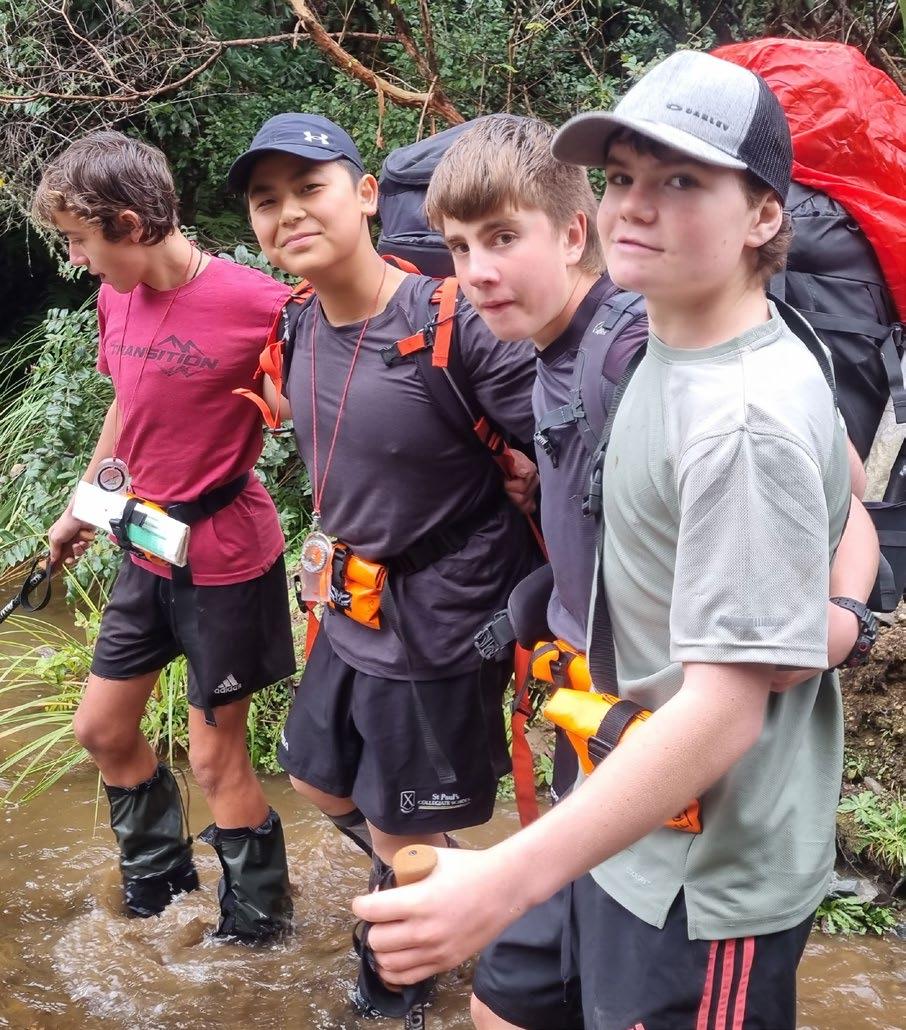
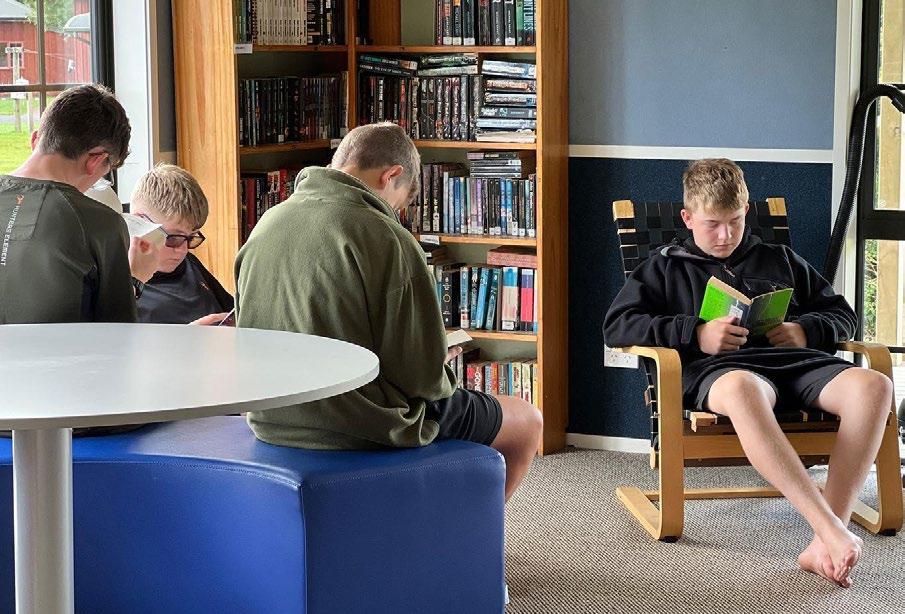
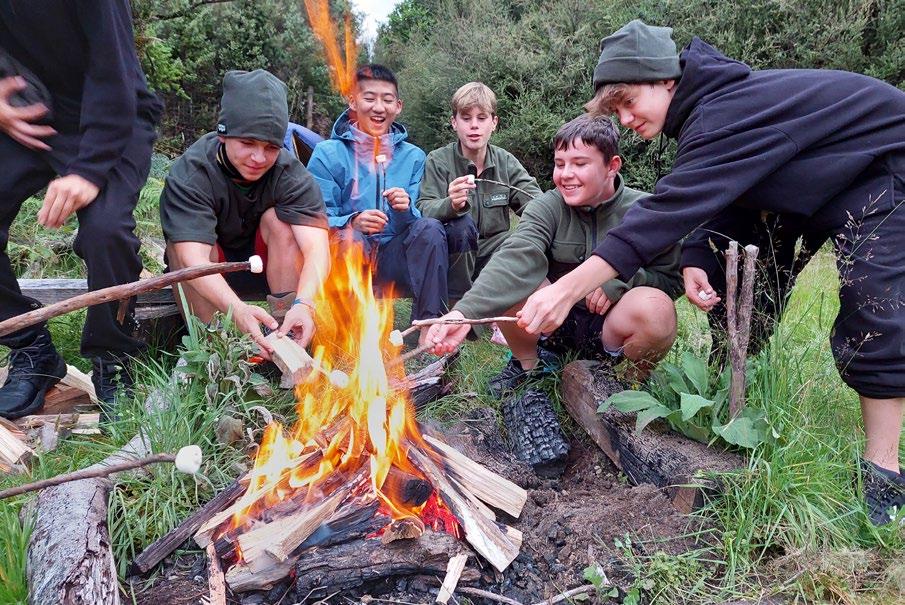
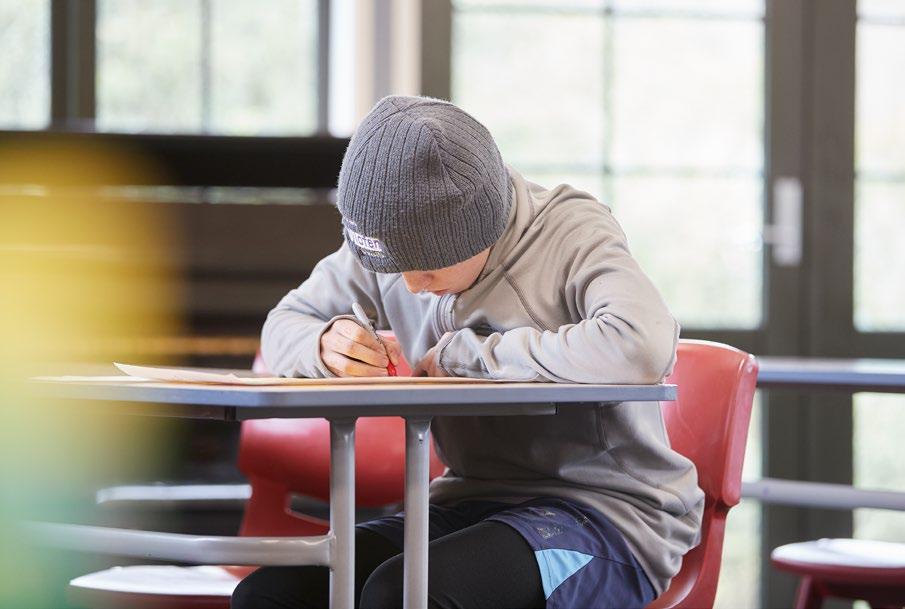
THE OUTDOOR PURSUITS PROGRAMME ENCOMPASSES:
Kayaking – flat water and moving water
Sea kayaking
Abseiling
Rock climbing
Tramping
Caving
Mountaineering
Firearms and range shooting
Survival exercise
A six-hour and 44-hour solo
An extended five-day expedition in the outdoor pursuit of the student’s choice
Fitness is a strong component of the Tihoi programme. The boys start running 3km each day through the Pureroa forest trails and slowly build up their fitness and distance to complete a 21km run (half marathon) before they leave.
To assist the boys in reaching their peak fitness, their diet is healthy – free from fast foods and soft drinks which are commonly referred to as contraband. For those students with a sweet tooth, dessert is offered some lunchtimes and baking is regularly provided.
We believe in offering a wide variety of social education and outdoor pursuits to ensure there is either challenge or success for each boy in different areas.
Students are encouraged to participate in the Duke of Edinburgh Award scheme and can achieve their bronze award while at Tihoi.
